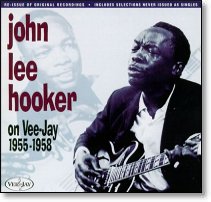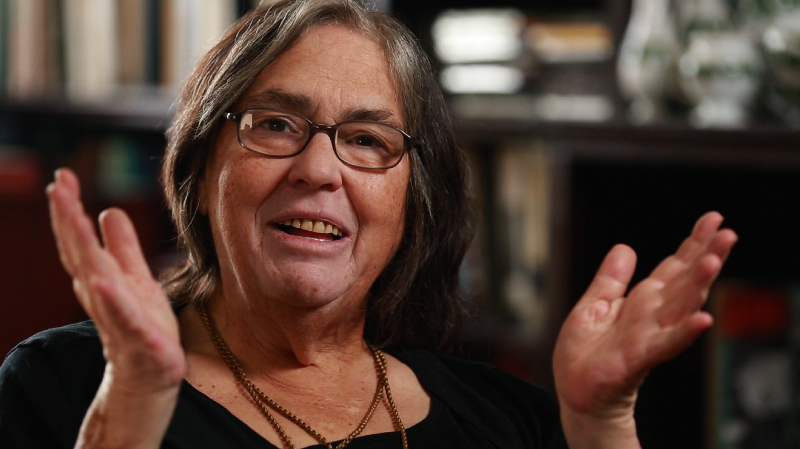Latest
2024
Apr
Mar
Feb
Jan
2023
Dec
Nov
Oct
Sep
Aug
Jul
Jun
May
Apr
Mar
Feb
Jan
2022
Dec
Nov
Oct
Sep
Aug
Jul
Jun
May
Apr
Mar
Feb
Jan
2021
Dec
Nov
Oct
Sep
Aug
Jul
Jun
May
Apr
Mar
Feb
Jan
2020
Dec
Nov
Oct
Sep
Aug
Jul
Jun
May
Apr
Mar
Feb
Jan
2019
Dec
Nov
Oct
Sep
Aug
Jul
Jun
May
Apr
Mar
Feb
Jan
2018
Dec
Nov
Oct
Sep
Aug
Jul
Jun
May
Apr
Mar
Feb
Jan
2017
Dec
Nov
Oct
Sep
Aug
Jul
Jun
May
Apr
Mar
Feb
Jan
2016
Dec
Nov
Oct
Sep
Aug
Jul
Jun
May
Apr
Mar
Feb
Jan
2015
Dec
Nov
Oct
Sep
Aug
Jul
Jun
May
Apr
Mar
Feb
Jan
2014
Dec
Nov
Oct
Sep
Aug
Jul
Jun
May
Apr
Mar
Feb
Jan
2013
Dec
Nov
Oct
Sep
Aug
Jul
Jun
May
Apr
Mar
Feb
Jan
2012
Dec
Nov
Oct
Sep
Aug
Jul
Jun
May
Apr
Mar
Feb
Jan
2011
Dec
Nov
Oct
Sep
Aug
Jul
Jun
May
Apr
Mar
Feb
Jan
2010
Dec
Nov
Oct
Sep
Aug
Jul
Jun
May
Apr
Mar
Feb
Jan
2009
Dec
Nov
Oct
Sep
Aug
Jul
Jun
May
Apr
Mar
Feb
Jan
2008
Dec
Nov
Oct
Sep
Aug
Jul
Jun
May
Apr
Mar
Feb
Jan
2007
Dec
Nov
Oct
Sep
Aug
Jul
Jun
May
Apr
Mar
Feb
Jan
2006
Dec
Nov
Oct
Sep
Aug
Jul
Jun
May
Apr
Mar
Feb
Jan
2005
Dec
Nov
Oct
Sep
Aug
Jul
Jun
May
Apr
Mar
Feb
Jan
2004
Dec
Nov
Oct
Sep
Aug
Jul
Jun
May
Apr
Mar
Feb
Jan
2003
Dec
Nov
Oct
Sep
Aug
Jul
Jun
May
Apr
Mar
Feb
Jan
2002
Dec
Nov
Oct
Sep
Aug
Jul
Jun
May
Apr
Mar
Feb
Jan
2001
Dec
Oct
Sep
Aug
Jul
Jun
May
Apr
Mar
Feb
Monday, September 28, 2015
Music Week
 |
 |
 |
 |
 |
 |
 |
 |
 |
 |
Music: Current count 25572 [25544] rated (+28), 437 [436] unrated (+1).
Cut this week short, closing it on Sunday afternoon so I can move on to packing. I'll be on the road for the next 2-3 weeks, driving straight east to New York City, then some less straight route back. Not sure about internet access, especially while we are in New York. At any rate I won't have the computers, tools, books, and gear I use to produce these posts, so don't expect much here. Lot of stuff still in the queue, and there will be more before I get back. Ulrich Gumpert album is sounding pretty good at the moment, but I should hold back on it.
Time may have contributed to the dip in rated count, but also note the sheer number of A- records this week. Most of them took 4-5 plays -- only New Order and the older Hooker were obvious picks from the start, and I still don't think the new MOPDtK is as good as most of the old ones (although Jon Irabagon has a field day). The Pop Group, the Specials, and Madness got extra plays in just missing, too. The latter came out of the Pitchfork 1970s list (well, not Madness, but it seemed like the moment). Very little left there that I haven't heard, just a couple records that aren't on Rhapsody.
John Lee Hooker's Don't Turn Me From Your Door was a suggestion from Phil Overeem. There are, of course, dozens of Hooker albums I haven't heard, but On Vee-Jay 1955-1958 was on Robert Santelli's blues list, number 18. Metric is probably the most marginal of the A- records, something that became more apparent after I played New Order.
New records rated this week:
- Bob Albanese: Time Remembered (2012 [2015], Mayimba): [r]: B+(*)
- Ezra Furman: Perpetual Motion People (2015, Bella Union): [r]: A-
- Miho Hazama: Time River (2015, Sunnyside): [cdr]: B+(**)
- Metric: Pagans in Vegas (2015, Metric): [r]: A-
- Mostly Other People Do the Killing: Mauch Chunk (2015, Hot Cup): [cd]: A-
- Caili O'Doherty: Padme (2015, Odo): [cd]: B+(**)
- New Order: Music Complete (2015, Mute): [r]: A-
- The Pop Group: Citizen Zombie (2015, Freaks R Us): [r]: B+(*)
- Noah Preminger: Pivot: Live at the 55 Bar (2015, self-released): [cd]: A-
- Donnie Trumpet & the Social Experiment: Surf (2015, self-released): [r]: A-
- John Wojciechowski: Focus (2015, Origin): [cd]: B+(**)
Old music rated this week:
- Madness: One Step Beyond . . . (1979, Stiff): [r]: B+(**)
- Madness: Absolutely (1980, Stiff): [r]: B
- Madness: Complete Madness (1979-82 [1982], Stiff): [r]: B+(***)
- The Pop Group: Y (1979 [2007], Radar): [r]: B+(***)
- The Pop Group: For How Much Longer Do We Tolerate Mass Murder? (1980, Rough Trade): [dl]: B+(**)
- Saturday Night Fever [The Original Movie Sound Track] (1976, Polydor): [r]: B+(*)
- The Specials: The Specials (1979, Chrysalis): [r]: B+(***)
- The Specials: More Specials (1980, Chrysalis): [r]: B+(*)
- The Specials: The Singles Collection (1979-84 [1991], Chrysalis): [cd]: A-
- Suicide: Suicide (1977, Red Star): [r]: B
- Suicide: Suicide (1980, Antilles/ZE): [r]: B+(**)
- This Are Two Tone (1979-82 [1983], Chrysalis): [r]: A-
Unpacking: Found in the mail last week:
- Marnix Busstra: Firm Fragile Fun (Buzz Music)
- Rich Halley 4: Eleven (Pine Eagle)
- Scott Hamilton & Jeff Hamilton Trio: Live in Bern (Capri): October 20
- Harth/Fischer/Daemgen: Confucius Tarif Reduit (Spore Point)
- Keigo Hirakawa: And Then There Were Three (self-released)
- Innerroute: Fourmation (self-released): October 15
- Matt Mitchell: Vista Accumulation (Pi): October 16
- Maria Schneider Orchestra: The Thompson Fields (ArtistShare)
- Martin Speicher/Peter Geisselbrecht/Jörg Fischer: Spicy Unit (Spore Print)
- Manuel Valera & Groove Square: Urban Landscape (Destiny)
- Galen Weston: Plugged In (Blujazz)
- Patrick Williams: Home Suite Home (BFM)
Added grades for remembered LPs from way back when:
- Get Down and Boogie (1974-76 [1976], Casablanca): A dance sampler label promo mixed onto two non-stop sides, the first with two tracks each from Giorgio Moroder and Donna Summer, the second breaking disco discipline with two funk classics from Parliament. I was reminded of this by Christgau's Saturday Night Fever review, and tried to assemble a songlist on Rhapsody, but most of the lesser lights were AWOL. B+
Sunday, September 27, 2015
Weekend Roundup
With the weekend approaching, I had one entry (on drug pricing) in the draft file. Don't have time to add much, but I do have some open tabs I want to take note of before I go offline:
Paul Krugman: Religions Are What People Make Them:
The current crop of Republican presidential candidates is accomplishing something I would have considered impossible: making George W. Bush look like a statesman. Say what you like about his actions after 9/11 -- and I did not like, at all -- at least he made a point of not feeding anti-Muslim hysteria. But that was then.
Reason probably doesn't do much good in these circumstances. Still, to the extent that there are people who should know better declaring that Islam is fundamentally incompatible with democracy, or science, or good things in general, I'd like to recommend a book I recently read: S. Frederick Starr's Lost Enlightenment: Central Asia's Golden Age From the Arab Conquest to Tamerlane. It covers a place and a time of which I knew nothing: the medieval flourishing of learning -- mathematics, astronomy, medicine, philosophy -- in central Asian cities made rich by irrigated agriculture and trade.
As Starr describes their work, some of these scholars really did prefigure the Enlightenment, sounding remarkably like Arabic-speaking precursors of David Hume and Voltaire. And the general picture he paints is of an Islamic world far more diverse in its beliefs and thinking than anything you might imagine from current prejudices.
Now, that enlightenment was eventually shut down by economic decline and a turn toward fundamentalism. But such tendencies are hardly unique to Islam.
People are people. They can achieve great things, or do terrible things, under lots of religious umbrellas. (An Israeli once joked to me, "Judaism has rarely been a religion of oppression. Why? Lack of opportunity.") It's ignorant and ahistorical to claim unique virtue or unique sin for any one set of beliefs.
A couple quick points: Bush understood that American intervention in the Middle East wouldn't work without local allies, which the US at least had to go through the motions of cultivating. One side effect of this is that Americans and Arabs would develop attachments which would eventually result in many of the latter coming to the US (much as had happened with Cuba and Vietnam). Islamophobes should have understood this dynamic from the beginning, and as such should have resisted Bush's imperial ventures. Of course, they didn't do that -- they're not very bright, but at least they understood that Bush's wars in the Middle East were wars against the people there. Not so clear that either side understood that long-term wars there would only increase intrinsic Islamophobia among Americans, but that's probably the easiest lesson one could have deduced from a study of America's wars.
The ending of the Arab enlightenment didn't correspond to economic downturn so much as military defeat, primarily by the Mongols and Turks. (A similar thing happened in Spain, first with the Moors then the Christians.) Of course, once the Mongols sack Baghdad it's hard to rebuild the economy. We've seen that in real time with the American occupation, which by most accounts was considerably less brutal.
In Israel, Jewish military power has turned Judaism into a religion of oppression -- indeed a remarkably nasty one. Perhaps that "lack of opportunity" has prevented any safeguards from evolving. Indeed, one can point to episodes where Christian rule was at least as brutal -- the Spanish Inquisition, for one.
Andrew Pollack: Drug Goes From $13.50 a Tablet to $750, Overnight: The drug is Daraprim, a 62-year-old generic which was acquired by "Turing Pharmaceuticals, a start-up run by a former hedge fund manager." The first thing you learn in MBA school is that the price of something has nothing to do with its cost: it's simply what the market will bear. For a drug that can be the difference between life and death, a seller can get away with a pretty steep price. Under such circumstances, there's little difference between "smart business" and the highwayman's motto, "your money or your life." What's unusual here is that the drug is generic, so in principle there's nothing to stop other companies from competing, and competition should bring the price down to something related to costs. However, as the article shows, there are ways an operator can create and exploit a temporary monopoly -- even where none should exist. One the article doesn't mention goes back to MBA school doctrine: if all the smart operators look for is huge margin opportunities, they'll never bother to compete a price down -- which leaves the first mover with monopoly rents.
The article gives several other examples of extortionate price increases. I've seen other reports that couple of them have been rolled back, basically by shaming the companies, although I suspect that the real leverage is that a few large insurance companies and, ultimately, the government are the main buyers of pharmaceuticals -- and while you may be powerless, they less committed to your health than to their own bottom line.
Dean Baker tweeted: "We don't negotiate firefighters' pay when they show up at the burning house, why would we pay for drugs this way?" Baker argues that we should End Patent Monopolies on Drugs. I agree with everything Baker says here:
The United States stands out among wealthy countries in that we give drug companies patent monopolies on drugs that are essential for people's health or lives and then allows them to charge whatever they want. Every other wealthy country has some system of price controls or negotiated prices where the government limits the extent to which drug companies can exploit the monopoly it has given them. The result is that we pay roughly twice as much for our drugs as the average for other wealthy countries. This additional cost is not associated with better care; we are just paying more for the same drugs. [ . . . ]
A monopoly that allows drug companies to sell their drugs at prices that can be hundreds of times the free market price has all the problems economics predicts when governments interfere with the market. Drug companies routinely mislead doctors and the public about the safety and effectiveness of their drugs to increase sales. The cost in terms of bad health outcomes and avoidable deaths runs into the tens of billions of dollars every year.
Drug companies also spend tens of millions on campaign contributions and lobbying to get [even] longer and stronger patent protection. The pharmaceutical industry is one of the main forces behind the Trans-Pacific Partnership, and its demands for stronger patent protections is one of the main obstacles to reaching an agreement with the other countries.
We don't need patent monopolies to support research. We already spend more than $30 billion a year financing research through the National Institutes of Health. Everyone, including the drug companies, agrees that this money is very productive. We could double or triple this spending and replace the patent supported research done by the drug companies. With the research costs paid upfront, most drugs would be available for the same price as a bottle of generic aspirin.
Still, as Pollack's article proves, the problem with drug pricing isn't just patents. Purchasers also need more leverage in negotiating prices -- by consolidating their purchasing power and by promoting more competitive options.
Also, a few links for further study (briefly noted; i.e., I don't have time for this shit right now):
Dean Baker: Labor Unions: The Folks Who Gave You the Weekend: Also Social Security, Medicare, and most of the protections that keep us from sinking into the abyss of red-in-tooth-and-claw capitalism.
Harrison Fluss: Donald Trump: American Psycho: "Donald Trump is the rotten fruit of the American ruling class." Also see: Rula Jebreal: Donald Trump is America's Silvio Berlusconi, and Michael D'Antonio: Mentored in the art of Manipulation: Donald Trump learned from the master -- Roy Cohn. The Berlusconi model is analogous for Trump, similar but unrelated paths. The Cohn model, however, is phylogenetic: the one begets the other.
Indira A.R. Lakshmanan: "If You Can't Do This Deal . . . Go Back to Tehran." "The inside story of the Obama administration's Iran diplomacy." -- i.e., mostly inside the American side.
Paul Rosenberg: John Boehner was really bad at his job. Now things are about to get epically worse. Also, Paul Krugman had this comment:
Lots of talk about the Boehner resignation. It was especially excruciating to hear pundits going on about the soon-to-be-ex Speaker's motivations for not just stepping down, but actually leaving his seat. Is there some rule preventing them from saying the obvious: his extremely lucrative career as a lobbyist can't start until he's out of Congress?
Brian Tashman: Scott Walker, Who Said Presidential Bid Was 'God's Plan,' Drops Out: Being so obviously a toady for the Kochs and other megadonors while focusing his ire on working Americans who happen to still belong to unions turns out not to be what the Republican masses were yearning for. And when he finally got hip to the idea that what turned on the masses was a wall against immigrants, he agreed but wanted to build it on the Canadian border. Now the remaining 15 candidates are scrambling to pick up Walker's remaining 0.5% poll share. I hope someone asks him -- a question I first posed with Rick Perry -- how it feels to be the second loser from this field?
Also see: Ed Kilgore: What Walker's Demise Means.
Sandy Tolan: On Night in Gaza and The 51 Day War: Ruin and Resistance in Gaza: Reviews of new books by Mads Gilbert and Max Blumenthal, respectively, on Israel's 2014 attack on Gaza (what Israelis refer to as "mowing the lawn").
Daily Log
I wrote this letter to Roy Wenzl at the Wichita Eagle, responding to an article he wrote on how inhospitable Wichita has become to entrepreneurship (Entrepreneurship in Wichita -- a best-known trait now old history?):
As I was reading your story today, I recalled an incident from long ago (1976). I was a typographer, working at a printing shop downtown ("Letters, Inc.") and I was out-producing everyone else in the shop, but the small raises I had been getting under the original owner had dried up when he quit for medical reasons and left his idiot son in charge. After many months, I finally asked for a raise, and I was told that was impossible: that I was already earning the maximum wage for my work, and that if I really needed to make more money, I should move to a higher-wage market -- like Tulsa. All that did was confirm my suspicion that Wichita businessmen were the dumbest species on earth. I quit, announcing my intention to move to New York City (I knew better than Tulsa). Of course, they came back with a raise offer, even a parking spot. I moved back to Wichita in 1999 when my parents' health was fading. I was able to keep my job in NJ, telecommuting, although that fell apart after a couple years. I dreaded the prospect of having to work for any of the morons who run businesses here -- a fear that was confirmed, for instance, when one company offered me $12.50/hour to develop a database application that was being outsourced from China (their two previous programmers had failed utterly; I had a spotless record as a consulting software engineer but was used to getting $50/hour back east). I thought about starting a business, something with an open source software approach to home automation. I wrote a business plan, talked to a bunch of people, never found the right mix of talent, so I never got around to finding out how bad the financial situation here was. (Of course, I suspected.) One thing I did notice was that T-1 lines, for instance, cost about 4-5 times as much here as they did in California. So I wound up kind of wasting away here, supported by my wife (who had kept her job through two moves, from Boston to NJ to Wichita). We're retired now, so I'm not fretting this, but nothing you wrote surprised me.The politicians, of course, believe the way to grow the economy here is to poach freeloading businesses from elsewhere with tax and other incentives. Even in the rare cases when that works, the companies never develop the commitment to the community home-grown businesses have, and they're just as likely to flutter away after the next sweet deal. Similarly, when home-grown businesses are sold off to big conglomerates (as has happened with Beech, Cessna, and Lear Jet) their new owners start to look at Wichita as a curse rather than a blessing, and the whole community suffers for the greed of the heirs.
Saturday, September 26, 2015
Elizabeth Fink (1945-2015)
 |
Elizabeth Fink was an attorney who spent her entire career defending and fighting politically-charged cases, especially against the abuse of power by state and federal authorities. She never suffered any delusions about the innocence and/or righteousness of her clients -- not that some weren't innocent and/or justified -- but she fully recognized how stacked the system is against them, and struggled relentlessly to tilt that system back toward justice. As she said, "justice is what everyone deserves and no one gets." And it should be noted that she was exceptionally effective in the courtroom: as Laura Stevens put it, "Liz had outstanding results in her work, winning case after case that was a loser for almost anyone else." Persistent too: "This applies to Attica not on the facts, which were compelling, but on the process, which would have defeated most people before the first 20 years expired."
Liz died on Tuesday, September 22, at age 70, in Brooklyn. She had increasingly dire kidney and heart problems, which forced her to give up her practice a couple years ago. In her last week she was approaching renal failure, and had a hemodialysis shunt installed. She took a short walk on Sunday and fell, possibly breaking her hip. In the hospital, her heart stopped. Laura Stevens, a dear friend ever since college, had spent the previous week with Liz (this is from a personal letter):
Through the whole week we were together, we had a good time with each other, talked for many hours, but her condition was awful. She had the beginning of renal failure . . . Her heart condition also exhausted her, so she couldn't walk any distance. Across the street was the maximum. She had a few comfortable hours a day in the later afternoon.
She didn't want to die, still being interested in "what comes next." She didn't want to live this way either, and was facing medical care she didn't want and didn't have confidence in. They can leave you worse off; we've all seen that, and she was truly wary. She still read voraciously, and listened to music with relish. She played it very loud, being very hard of hearing, but it gave her great pleasure. . . . I was always impressed with how much she took away from it, insights she'd have about the music and things that had been said on the program.
She is survived by her brother, photographer Larry Fink, and by numerous friends who miss her dearly.
The following pieces will give you a quick guide to her career (although each misses much):
- Her Wikipedia entry.
- Gary Craig: Elizabeth Fink, lawyer who fought for Attica inmates, dies [USA Today obituary]
- Sam Roberts: Elizabeth M. Fink, a Lawyer for Attica Inmates and Radicals, Dies at 70: Some errors here: Her middle name was Marcia, not Marsha; her father, Bernie Fink, was an insurance agent, not a lawyer; Frank Smith was universally known as Big Black, but "B. B." weren't his middle initials; the $4 million Smith won in a jury trial wasn't reduced to $125,000 -- it was overturned by a judge who decided that Smith's case shouldn't be separated from the group case, which was settled in 2000 (after being dragged out for 26 years) for a relative pittance. For more on Smith, see this .
- Elizabeth Fink, lawyer who helped Attica inmates win settlement, dies at 70 [Washington Post obituary]
- Michael Virtanen: Elizabeth Fink, Lawyer for Attica Inmates, Dies at 70 [AP obituary, via ABC News]
- Still Fighting [Reed College alumni profile, from 2007]
- The Attica Prison Uprising: Forty Years Later [YouTube video]
Liz grew up in a left-wing family in Brooklyn, keeping a equally committed but less doctrinaire version of her family's politics. (I know little about her father, who died before I met her, but her mother -- I knew her as Sylvia Kleinman -- was always involved in something political, notably the Gray Panthers. She once walked off Charlie Rose's show because she didn't think he was taking her seriously.) Liz went to Reed College and graduated in 1967. That's where she met "the two Lauras" and they remained lifelong friends -- Laura Stevens, introduced above, and Laura Tillem, who later met and married me. In 1971, the Attica prison revolt was murderously put down on orders from NY Governor Nelson Rockefeller. The state's first instinct there was to prosecute prisoners, among other things charging them with the deaths of the nine prison guards who had been held hostage and were shot and killed by the invading troops. When Liz graduated from Brooklyn Law School, she joined the defense team, helped get the charges dropped, and filed suit against the state, resulting in several trials and the settlement in 2000. She stuck through the entire ordeal. Even in her last days she was working on organizing her archives and trying to force New York to release still-secret documents.
I first met Liz shortly after Laura Tillem and I got together. We were living in Boston, and Liz came up frequently -- the "Ohio 7" sedition case was tried in Springfield, so Liz stayed there for the duration of the trial. (Some info here: "the longest and most expensive trial in the history of Massachusetts, . . . When the trial ended with no convictions, it also turned out to be one of the most controversial -- and highly criticized -- trials . . ." -- I remember that we talked at great length about what a staggering waste of public resources the trial was. As I recall the amount of money the government wasted was about five times the capitalization of the start-up company I was working for at the time.) After the trial, she came to Boston less, but we went to New York more. We met up once at her mother's house in New Jersey. On a couple occasions Liz and her mother rented a house way out on Long Island and invited lots of their friends out. Once we flew to Portland for a Reed Reunion -- that was the first time I met Laura Stevens. When Sylvia died we dropped everything and drove to Brooklyn. (A few months earlier Sylvia closed up the NJ home and moved into an assisted living apartment in Brooklyn.) When we moved to NJ, Liz came out many times, including to one of my notorious birthday dinners. After we moved to Wichita, Liz and Laura Stevens stopped on a cross-country drive. We were staying at Liz's when 9/11 happened, and I wound up staying there a month. As Liz's health declined, Laura made several trips to New York to help out. I only made one, in May 2014, at a point when she was doing relatively well.
In listing all these encounters, I can't help but feel like I'm bragging, but really I count myself as incredibly lucky. I've heard that when Laura and I first got together, Liz's only question was whether I was "smart enough" for her. I'm pretty sure I passed muster, but really, the most imposing intellect I've ever encountered was Liz's. She read more than anyone I've ever known, comprehended it all, was always incisive in her critiques, and could speak eloquently and poignantly without ever losing your interest. She was, in short, dazzling. One regret I have is that I never saw her in a courtroom, one of the few places where such rigor may prove decisive. A greater regret is that she always resisted my pleas to write. I would have been satisfied had she found a scribe to follow her around and jot down stories (like Ralph Leighton did for Richard Feynman). Terrific stories, thousands of them. If we're lucky, her friends will recall many of them, but too many are already lost. She may have been right that she could never write as well as her favorite writers, but her voice deserves an oral legacy as rich as, well, the other bard who passed this week, Lawrence Peter Berra.
But that was just one of many facets to this remarkable person. I'd like to close by quoting several memories that people have written to her Facebook timeline. I hope at some point to collect these and more on the Friends of Liz Fink webpage.
Gideon Oliver [Sept. 22 at 11:04pm]:
I loved Elizabeth Fink very much and was lucky to have her as a mentor and friend. Beyond that, I don't have words about this yet.
Gideon Oliver [Sept. 22 at 11:35pm]:
Starting at :45 - Elizabeth Fink on the courthouse steps, spitting fire and speaking truth to power: Woman linked to Al-Qaida won't answer attempted murder charges in US.
Lamis Deek [Sept. 23 at 2:11am]:
She was also more beautiful than she knew, more beautiful than the world wanted her to be. Good night dear Elizabeth Fink.
Nancy Alisberg [Sept. 23 at 8:02am]:
So sad to hear of the death of Elizabeth Fink. Friend, mentor, neighbor.
Cynthia Skow [Sept. 23 at 9:07am]:
The world lost a true warrior for justice yesterday and I lost a hero. Elizabeth Fink, rest in power!
Lamis Deek [Sept. 23 at 11:53am]:
Few, far too few, people lived with the integrity Elizabeth Fink did . . . her love was active, full and given to those who need it most in ways that really count. Her life, her practice was ruled by the most important rules "if you're OK, I'm OK" and "Dare to struggle dare to win." She was a school unto herself.
Farewell fallen comrade and teacher.
Fahd Ahmed [Sept. 23 at 1:14pm]:
I'm not big on hero-izing people.
But Elizabeth Fink was one of those people who changed me forever within a few minutes.
I was lucky to have been trained to be a lawyer "on your own terms" (ie. don't let the system define who you are and what you do). But I really learned what it meant within a few minutes of meeting Liz, and definitely the first time I saw her in court. From how she walked about, where she scattered (very intentionally) her belongings, how she talked to court officers and judges, etc. Absolutely outrageous woman. And I absolutely loved it.
It was a measured "fuck you and your whole damn system" approach, while making sure to keep the client at center. Tremendous fierceness against the system and tremendous love and care for the people.
A genuine peoples lawyer who understood the nexus of her work with mass movements.
It was an honor to know you, and to work with you. And I forever take what I learned into all of my work beyond lawyering.
You and your fire will be missed.
Pat Rowbotton [Sept. 23 at 2:53pm]:
Liz fought hard with brilliance and creativity. Saw the Ohio 7 to freedom - no one ever fought as hard or won as much.
Meg Handler [Sept. 24 at 10:06am]:
'Dare to struggle; dare to win.' - Elizabeth Fink
This week, we lost one fierce lady. Liz was tough, brilliant and funny and she committed her life to fighting social injustice. I knew Liz thru her brother Larry. She was like family to me. When 800 of us were wrongfully arrested during the RNC in 2004, and I was asked if I had a lawyer who could be called, I said Liz Fink. It turned out Liz and a few other civil rights lawyers were already down in the courtroom arguing for our release. At that moment I knew I was in good shape, that myself and the other wrongfully arrested, would be taken care of. It took 10 years . . . and in the end, it did get taken care of. 10 years was nothing for the likes of Liz, she fought for the Attica inmates for 25 years. She always fought the good fight. She will be missed by many.
Susan Slovak [Sept. 24 at 11:28am]:
She was always gutsy and brave, even in high school. I so admired her integrity and intelligence, even then. She will be so very very missed.
Gideon Oliver [Sept. 24 at 5:27pm]:
Elizabeth Fink accepting the proclamation and a key to the city of Venice, Italy, for the return of Silvia Baraldini. From Michael Deutsch's article "Frank and Liz" published in the National Lawyers Guild - NYC Chapter 2006 Spring Fling Journal. PRESENTE.
Gideon Oliver [Sept. 24 at 5:35pm]:
Elizabeth Fink talking about the Ohio 7 trial and a whole lot more - "Hundreds of law enforcement personnel from across the Northeast came to campus and protested the event the evening it took place. . . ." - h/t Michael Deutsch: Part 4 "The Great Sedition Trial" issues from the trial 11.12.09.
Rachel J-s [Sept. 25 at 12:41am]:
My mom's best friend Elizabeth Fink died this week. I knew her my whole life, from vivid memories of her not letting me win at monopoly when I was 6, to giving me the keys to her apartment when I moved to New York City when I was 20. She was insanely generous with me and many other people, a wealth of historical knowledge about the American left, and taught me about serious, delicious food, before foodie was a term. I really can't quite believe she won't be opening her apartment door, suggesting something amazing for lunch and telling me to take her dog for a walk, the next time I'm in Brooklyn.
Debbie Hrbek [Sept. 25 at 7:10am]:
Please watch, and share, this powerful presentation by my mentor, the wonderful Elizabeth Fink, who died on Tuesday. Such an inspiration to young lawyers about the importance of fighting the good fight. [Second link to Part 4 "The Great Sedition Trial" issues from the trial 11.12.09.]
Gideon Oliver [Sept. 25 at 3:54pm]:
Long, amazing, and worthwhile interview w/ Elizabeth Fink from Black Panther doc "What We Want, What We Believe" posted to Robert Boyle's page - It's amazing to hear Liz talk about Dhoruba Bin-Wahad - this is history everyone should know, and just a ton of Liz being Liz - YouTube.
Carmen Jeannette Levasseur [Sept. 25 at 9:30pm]:
Liz Elizabeth Fink drove my sisters and I to and from family visits for years. She was a grounded force in a time of chaos. She always let me sit in front.
Bobby Quackenbush [Sept. 25 at 9:45pm]:
"Jeopardizing the Republic. I think I'd like that on my tombstone." - Elizabeth Fink
Ben Feinberg-Gerner [Sept. 25 at 11:35pm]:
Elizabeth Fink at her finest: fiery, passionate, deeply funny. Ever the watchwoman for the Constitutional protections we all have -- even when our government would rather overlook them in the name of policy or expedience.
The details of the case in question make her speech a bit tricky to follow, but what matters here in the underlying message and Liz's passion for justice. [Third link to Part 4 "The Great Sedition Trial" issues from the trial 11.12.09].
Edward Hershey [Sept. 26 at 2:05am]:
Usually glad to see The New York Times quote a passage of mine but not this time because it is at the end of Elizabeth Fink's obituary. I met Liz in Buffalo in 1974 when I covered the trial of 2 inmates charged with inciting the Attica Prison insurrection. She was on the defense team. She returned for her 40th Reed College reunion and I profiled her in the alumni magazine Still Fighting]. She was true to her principles every step of the way.
Finally, here's a recent photo, from an interview Mike Hull filmed:

Monday, September 21, 2015
Daily Log
Music Week
 |
 |
 |
 |
 |
 |
Music: Current count 25544 [25500] rated (+44), 434 [436] unrated (-2).
I haven't played any Hatology records since last week's Rhapsody Streamnotes, although I expect I will before October's installment -- I'm still updating my checklist, and there's still lots to do (plus I'm finding a few older Hat Art releases). The only Hat A this week (and it's a full A) is Horace Tapscott's The Dark Tree, the latest reissue of a pair of albums I've long treasured.
My latest tangent as been 1970s pop/rock. As I was checking out the new Giorgio Moroder Michael Tatum recommended, I noticed that Moroder's 1977 album From Here to Eternity was on a list Pitchfork had assembled of The Top 100 Albums of the 1970s. As usual, I was tempted to fill in all the holes, and doubly so for Moroder -- as background for the new one, and because it's an album I used to own but somehow hadn't listed in the database. (I was on Casablanca's mailing list for a while in the late 1970s.)
Turns out that I had previously graded 85/100 albums -- the '70s were my decade, after all. My homework: Nick Drake, T. Rex, Neu!, Can, Saturday Night Fever, Pop Group, Suicide, Specials, Tim Buckley, Cluster, Faust, Van Halen, Nilsson, Throbbing Gristle, King Crimson -- someone at Pitchfork is really into Krautrock. I knocked about half of those off this week. Their list exhibits some unsurprising biases -- among pop/rock entries, 42 Brits but only 8 Afro-Americans, same as the number of Krautrock albums -- but did include 5 jazz albums (4 Miles Davis + 1 Herbie Hancock). There was a severe dry spell in the mid-1970s: only 9 albums for 1974-76. Unlike many lists, they weren't shy about picking 2nd, 3rd, or 4th albums by favorites: 4 each for David Bowie, Miles Davis, Led Zeppelin, Pink Floyd; 3 for Can, Brian Eno, Iggy and/or the Stooges; 2 for The Clash, Elvis Costello, Nick Drake, King Crimson, Kraftwerk, Fela Kuti, Ramones, Talking Heads, Neil Young. Still, I can't complain about the overall quality (unlike many recent lists): they picked 10 A+ albums, another 25 A albums, 25 more A-, and only 7 albums B or lower (only Van Halen much lower).
On the other hand, some missing artists: Captain Beefheart, Ornette Coleman, Derek and the Dominos, Nick Lowe, Lynyrd Skynyrd, Bob Marley, Kate & Anna McGarrigle, Van Morrison, Mott the Hoople, New York Dolls, Parliament, Pere Ubu, John Prine, Bonnie Raitt, Lou Reed, Patti Smith, Steely Dan, Donna Summer, Bill Withers. I was tempted to offer an alternative list, but it could easily be as long.
By the way, the new Moroder album is unique in his catalog: it's like a compilation of productions for other singers as opposed to the robotized disco albums he released under his own name. At least Moroder's old Casablanca records are on Rhapsody (but not, alas, his 1969 That's Bubblegum). I tried assembling a playlist to match Casablanca's disco sampler Get Up and Boogie, but came up short by half.
All the new jazz I had this week was three high-B+ HMs until I gave Ochion Jewell a couple extra spins. Although he may be more impressed that he got Lionel Loueke to play on two tracks, the secret ingredient is the pianist and drummer from Dawn of Midi, offering many surprises. Preoccupied as I've been elsewhere, there's quite a bit of new jazz in the queue.
New records rated this week:
- The Gabriel Alegria Afro-Peruvian Sextet: 10 (2015, Zoho): [cd]: B+(***)
- Animation: Machine Language (2014 [2015], Rare Noise): [cdr]: B
- John Fedchock Quartet: Live: Fluidity (2014 [2015], Summit): [cd]: B+(**)
- Ochion Jewell Quartet: Volk (2015, self-released): [cd]: A-
- Keith Kelly Ask Not: A Grand Apparatus, Discarded (2014 [2015], Edgetone): [cd]: B+(**)
- Maddie & Tae: Start Here (2015, Dot): [r]: B+(*)
- Josh Maxey: Celebration of Soul (2015, Miles High): [cd]: B
- Bob Merrill: Cheerin' Up the Universe (2013 [2015], Accurate): [cd]: B+(**)
- Giorgio Moroder: Deja-Vu (2015, RCA): [r]: A-
- Pere Ubu: Carnival of Souls (2014, Fire): [r]: B+(***)
- Cecile McLorin Salvant: For One to Love (2015, Mack Avenue): [r]: B+(*)
- Aram Shelton/Fred Lonberg-Holm/Frank Rosaly: Resounder (2014 [2015], Singlespeed Music): [cd]: B+(***)
- Rotem Sivan Trio: A New Dance (2015, Fresh Sound New Talent): [cd]: B+(*)
- The Weeknd: Beauty Behind the Madness (2015, Republic): [r]: B+(*)
Recent reissues, compilations, and vault discoveries rated this week:
- Horace Tapscott: The Dark Tree (1989 [2014], Hatology, 2CD): [r]: A
- Amara Touré: 1973-1980 (1973-80 [2015], Analog Africa): [r]: B+(***)
Old records rated this week:
- Can: Tago Mago (1971, United Artists): [r]: B+(***)
- Ornette Coleman: The Empty Foxhole (1966 [1967], Blue Note): [r]: B+(***)
- Nick Drake: Pink Moon (1972, Island): [r]: B+(*)
- Faust: Faust IV (1973, Virgin): [r]: B+(**)
- Faust: Something Dirty (2011, Bureau B): [r]: B+(**)
- The Pandelis Karayorgis Trio: Heart and Sack (1998, Leo Lab): [r]: A-
- Pandelis Karayorgis: Seventeen Pieces: Solo Piano (2004, Leo): [r]: B+(***)
- Franz Koglmann: O Moon My Pin-Up (1997 [2001], Hatology): [r]: B
- Franz Koglmann: An Affair With Strauss (1999, Between the Lines): [r]: B+(**)
- Franz Koglmann: Venus in Transit (2001, Between the Lines): [r]: B+(**)
- Franz Koglmann: Fear Death by Water (2003, Between the Lines): [r]: B
- Urs Leimgruber/Joëlle Léandre/Fritz Hauser: No Try No Fail (1996 [1997], Hatology): [r]: B+(*)
- Giorgio Moroder: Knights in White Statin (1976, Oasis): [r]: B+(*)
- Giorgio Moroder: From Here to Eternity (1977, Casablanca): [r]: B
- Neu!: Neu! (1972, Brain): [r]: A-
- Harry Nilsson: Nilsson Sings Newman (1970, Buddha): [r]: B-
- Harry Nilsson: Nilsson Schmilsson (1971, RCA): [r]: B+(***)
- Harry Nilsson: Pussy Cats (1974, RCA): [r]: B
- T. Rex: Electric Warrior (1971, Reprise): [r]: B+(**)
- T. Rex: The Slider (1972, Reprise): [r]: B+(*)
- Horace Tapscott/Pan-Afrikan Peoples Arkestra: The Call (1978 [2012], Nimbus West): [bc]: B+(**)
- Horace Tapscott with the Pan-Afrikan Peoples Arkestra: Live at I.U.C.C. (1979 [2006], Nimbus West, 2CD): [bc]: A-
- Horace Tapscott: Lighthouse 79, Vol. 1 (1979 [2009], Nimbus West): [r]: B+(**)
- Horace Tapscott: Lighthouse 79, Vol. 2 (1979 [2009], Nimbus West): [r]: B+(**)
- Horace Tapscott: The Tapscott Sessions Vol. 8 (1984 [1997], Nimbus West): [r]: B+(***)
- Van Halen: Val Halen (1978, Warner Brothers): [r]: C+
Unpacking: Found in the mail last week:
- Rodrigo Amado: This Is Our Language (Not Two)
- Randy Bernsen: Grace Notes (Jericho Jams)
- Marcelo Dos Reis/Angélica V. Salvi: Concentric Rinds (Cipsela)
- Bill Kirchner: An Evening of Indigos (Jazzheads, 2CD): October 16
- Frank Kohl Quartet: Invisible Man (Pony Boy): October 2
- Adam Larson: Selective Amnesia (Inner Circle Music): November 3
- Daniel Levin/Rob Brown: Divergent Paths (Cipsela)
- Mostly Other People Do the Killing: Maucha Chunk (Hot Cup): October 27
- Oscar Perez: Prepare a Place for Me (Myna): October 13
- Michael Sarian & the Chabones: The Escape Suite (self-released): November 3
- Ike Sturm + Evergreen: Shelter of Trees (Kilde): November 10
- Bastian Weinhold: Cityscape (Frame Music): November 3
Miscellaneous notes:
- Harry Nilsson: Greatest Hits (1967-74 [1978], RCA):
- T. Rex: Great Hits (1972-73 [1973], EMI): B+
Sunday, September 20, 2015
Weekend Roundup
Short post this week. Got a late start, and didn't get beyond the usual US political campaign grist. Rest assured though that the Middle East remains as fucked as ever, that Europe is struggling with a refugee crisis, that Greece is stuck with a choice between two defeatist parties, that the rich still aren't satisfied, and environmental disasters are still multiplying. Meanwhile, our "best and brightest" reporters are mired in what Matt Taibbi calls "the stupid season."
David Atkins: Why Does the Press Continue to Get It So Wrong on Donald Trump?: Why do pundits, and for that matter pretty much all of the mainstream press, keep getting popular political opinions wrong?
Conservatives will claim that journalists are liberal and don't understand Republican politics. Perhaps, but progressives have made equally scathing critiques of the press for years in their underestimation of progressive populist sentiment and elevation of centrist candidates. It's less that the political press is liberal, and more that it is trapped' in a bubble inhabited by the wealthy and powerful. [ . . . ]
But more importantly, there is a bias in the press toward political neutrality and the perception of balance. After a debate in which Republican candidates peddled an endless string of falsehoods and fantasies, the political press has a crisis on its hands: let it all slide and simply transcribe the lies without challenge, or contribute to a perception of "liberal bias" by actually calling out the falsehoods and holding the candidates accountable?
Trump presents a similar problem. Trump's extremist positions on immigration and foreign policy, combined with his vulgar, racist and sexist remarks, are so obviously appalling that for him to continuously lead the GOP field not only proves the Mann/Ornstein thesis that the Republican Party has grown uniquely extreme, but also shows that problem extends beyond Republican Party leadership to the actual voters themselves. Even more, the fact that Trump's apostasy on taxes and healthcare has not significantly damaged him is a demonstration that GOP voters are not actually so committed to the libertarian supply-side economics of the Republican Party as they are to using the power of government to benefit traditionally powerful whites at the expense of women and minorities.
This a problem for the press. As long as Trump leads, it's impossible to maintain the fiction of equally extreme "both sides do it" partisanship. As long as Trump rules (and, to a lesser extent, that Bernie Sanders continues to rise on the left) it's also increasingly difficult to pretend that "moderates" in either party are actually the center of public opinion, rather than caterers to a unique brand of corporate-friendly upper-class comfort that labels itself as moderate without holding any legitimate claim to the title.
Acknowledging those realities would force the press to start reporting the fundamentals of American politics as they stand today:
First, that the Republican base wants a rebel leader to take their country back from the inconvenience of being nice to women, gays and minorities;
Second, that the wealthy Republican establishment and its center-right Third Way Democratic counterparts don't actually have a legitimate base of voters, but rather illegitimate institutional capture of government via legalized bribery; and
Third, that the rest of the country wants liberal public policies that would resemble a Scandinavian government, but most of them are so turned off by the futility of the American political process that not enough of them turn out to vote to make a real difference outside of the bluest states.
The first two of these points could be phrased better but are pretty self-evident. The Republican Party is an uneasy coalition of leaders and followers: the former that segment of the wealthy that seeks to gain through zero-sum strategies (reducing taxes, suppressing wages, growing monopolies, exchanging wealth for debt, arbitrage); the latter various segments of gullible single-issue voters (racists, religious bigots, anti-abortion, pro-gun, flag wavers, anything that distracts one from class). The appeal to the latter is a combination of flattery (you're the real Americans) and demagoguery (they're hell-bent on destroying your life). That coalition is unstable because the leaders are actively undermining the followers' material basis, and this fracturing only increases as the leaders gain power. It may be possible for a politician to crack this coalition by running against the elites, but I don't see any reason to expect Trump will do that. Rather, as his own billionaire sponsor, his potential independence worries the elites and offers some hope to the gullible followers. Still, I don't see it panning out: even if his understanding of class never extends beyond his own bottom line, you know where he's going to land on every significant issue.
The third point is the controversial one, because the main obstacle a significant extension of social democratic policies faces comes not from the Republicans -- who would cut their base's throats to achieve their goal of reducing government -- as from the mainstream Democrats, who chase after campaign money with the avarice of Republicans but at least have some scruples against wrecking the status quo (not that they always have the wisdom, as shown by their support for wrecking Carter-Glass banking regulation). The public may very well want more than the Democrats are offering, but without unions or other groups pressuring the Democrats to deliver, they'll keep playing defense (with the occasional fumble).
Josh Marshall: The War Party: Responding to the Republican dog and pony show, Marshall points out that when foreign policy issues came up, "Trump may have been silent because he just doesn't know enough details or doesn't care enough about them to engage," while the others "turned not so much to foreign policy as to each candidate trying to outdo the other in embracing the sort of petulant unilateralism that made the aughts such a disaster for the United States. It was, to put it simply, a race to embrace Bush foreign policy on steroids." I wouldn't give Trump much of a pass here -- he has, after all, claimed he's "the most militaristic person there is" (see Scott Eric Kaufman and Glen Healy -- the latter defending Trump by arguing that his boast is the "biggest lie" of a pathological braggart). Still, Marshall is right to focus on Rubio and Fiorina, who pundits like to praise for their ability to spew this shit with a straight face.
Let's start with Marco Rubio, who has tried to carve out a space as the candidate of the neoconservatives in exile. Joe Klein saw him as the clear winner of the debate with a crisp and incisive command of national defense policy. "To my mind, Marco Rubio won that debate with his obvious fluency on a range of topics . . . Marco Rubio is becoming a force to be reckoned with -- on the debate stage. He is fluent, smart and bold."
That is not what I saw at all.
I agree that Rubio continues to come off as likable and he makes no obvious mistakes in these encounters. I actually think that just by dint of process of elimination he has a substantial better shot at the nomination that most people realize. But in his recitations on foreign policy he doesn't come off as knowledgable or seasoned. He comes off as someone who has obligingly internalized, in a kind of rote manner, the wisdom of Bill Kristol to get the money of Sheldon Adelson. There is a strong DC insider appetite for these nostrums. So it's not just the money. But these are dangerous, discredited ideas that were tried and failed miserably under the last Republican President. Indeed, they failed so miserably that even in President Bush's second term the standard-bearers were largely ushered aside in favor of a slightly more realist approach to cleaning up the messes created in the first term.
If there is one thing the country does not need it is another impressionable foreign policy neophyte who comes under the influence of this war-addicted DC coven.
Next is Carly Fiorina. I entirely agree that she had a strong, commanding debate. She seemed particularly focused and knowledgable on national security questions as she rattled off a number of things she would do to take a more aggressive posture toward America's adversaries and rivals.
Unless of course you actually have any idea what you're talking about. In which case, the things she said seemed quite different. At a broad level, it's the same kind of confrontational and dangerous foreign policy that got the country into trouble a decade ago. But as Ezra Klein explains here, Fiorina's list of proposed actions were a mix of things that were irrelevant to the questions at hand, are already happening, or things that operate on a time scale such that they can't have any real affect on the challenges she suggests they're aimed at countering. The dangerous ground of half-knowledge. Or policies as puzzle pieces with no larger picture or understanding.
I think the appeal the necons have among Republicans now is tied up with the right's obsession with condemning all things Obama. It is, after all, an extremist doctrine, one that takes common assumptions of the cold war security state and through a combination of logical rigor and macho posturing drives them to seductive but untenable extremes. It's worth recalling that the neocons' original nemesis was none other than Henry Kissinger, no minor war criminal himself, so casting Obama as cowardly and unpatriotic was easy. (Lazy and shameless too: after all, the crime they wailed about in Benghazi! wasn't Obama's running an illegal CIA operation there or getting it blown up but not spouting the correct anti-Islamic bigotry afterwards -- i.e., the one that would justify further disastrous intervention.)
The neocon parlor game of rhetoric is hard to beat in the salons of Washington, even though it has never been shown to work in the real world -- where America isn't omnipotent, where American efforts to "shock and awe" other into submission merely publicize the moral rot that somes with superpower hubris. The neocons always have the excuse that their principles were compromised by weaklings who didn't believe and didn't try hard enough. The real antidote to neoconism is to question the assumptions -- something Obama and Clinton never had the guts to do, because the institutional power of the security state is too entrenched. Some of the leading dimwits of the Tea Party movement were tempted in that direction, but Michelle Bachmann fizzled before she could articulate much, and Rand Paul let himself be convinced that only by prevaricating could he win the nomination -- leaving himself no principle to stand on.
Marshall's conclusion:
The attitude of embattlement and grievance that currently animates the Republican party is something we're quite familiar with in the domestic sphere but it's even more present in the outlook abroad. It is a dangerous thing to take a coalition which feels embattled, victimized and disempowered and put them in charge of the most powerful military in the world. A coalition like that, with an untrained hand at the helm, guided by terrible advisors is a recipe for disaster.
Philip Weiss: Coulter's point is that Republicans pander on Israel to win donors, not voters: I referred to the Republican presidential debate above as a "dog and pony show" -- a phrase that back in my corporate days we used to refer to any staged presentation (to customers, to investors, or to anyone else you hoped to deal with). I was looking for an alternative turn of phrase, but also I was a bit uncomfortable with "debate" -- that suggests a high-minded collegiate contest being scored by experts, and while many pundits are conceited enough to think of themselves that way, that wasn't necessarily the judgment the candidates were looking for. Some were mostly intent on selling themselves to potential voters, while some were no doubt more concerned with donors. It now occurs to me that the latter may have been the main focus, one that resonates with my "dog and pony show" quip: after all, who bothers to watch a dog or horse race unless they have some money riding on the result?
Coulter is a thoroughly obnoxious pundit, one who built her entire career by heaping hateful invective on liberals, a torrent so vile it's consumed her, turning her into such a fount of hatred that she's lost the ability to distinguish between former friends and foes. It wouldn't surprise me if her "fucking Jews" tweet reveals anti-semitism because her hate has become so universal, although it sounds as much like her usual stock in trade. Still, the sequence of her tweets shows she's at least trying to think through what she's seeing. She quickly figures out that Republican appeals on Israel aren't meant to curry favor with Jewish voters, because there aren't that many of them, and most vote Democratic anyway. She considers whether it's "to suck up to the Evangelicals" -- they are more numerous, and they're a key target constituency for Republicans: many see Israel as an essential step toward the second coming of Jesus, the "end times" and all that. (I've known people obsessed with that, although you don't read much about them as it's considered impolite to talk about such delusions.) But in the end Coulter decides the candidates are pitching their donors, and she comes up with this tweet, which despite everything is pretty much on target:
How to get applause from GOP donors: 1) Pledge to start a war 2) Talk about job creators 3) Denounce abortion 4) Cite Reagan 5) Cite Israel.
Worth noting that (1) is an implicit case of (5), not that war with Iran isn't the only pledge, but if it wasn't Iran it'd be someone else on Israel's "existential threat" list -- ISIS, for one, is looming. Coulter's hot button issue at the moment seems to be nativism, which whenever it has erupted in American history has been rooted in racism (and often linked to anti-semitism, although these days the semites are much more often Muslim). Nativism has also tended to be associated with autarky and isolationism, and Coulter seems to be leaning that way -- if you don't want foreigners coming to America, you shouldn't go around the world starting wars and stirring up distress, like America's liberal interventionists have been doing ever since FDR. One could build a coherent conservative argument around such notions, but I have yet to hear one from Trump or Coulter or even Rand Paul. Part of the problem there is that Fascists in the 1930s discredited those notions for generations. Part is that capital -- the money of the superrich who think they run the GOP -- has become so globalized that any real autarky has become unimaginable. And while it's not clear that global capital really requires America's military sprawl, no Republican has come around to asking that question.
In a sense, (3) has become the core point: not so much that the money Republicans hate abortion, but abortion has become a litmus test issue, something no Republican can question without being drummed out of the tribe. But then all the points are increasingly like that: litmus tests, articles of faith, self-commitments. They draw applause because Republicans love to applaud themselves. But they're increasingly self-selecting themselves into a power-losing minority.
By the way, we can thank Netanyahu for moving Israel out of the realm of bipartisan consensus and into the Republican column. That will eventually free the Democrats of a terrible burden. As Weiss puts it:
One good result of this conversation will be more Jews condemning Sheldon Adelson and Norman Braman and the Republican Jewish Coalition moneybags for trying to have a war with Iran, more Jews declaring that they aren't Zionists.
As for Coulter's (4) point, see: Jon Schwarz: Seven Things About Ronald Reagan You Won't Hear at the Reagan Library GOP Debate: "And maybe that's appropriate -- since if Reagan stood for anything as president, it was creating a completely fictionalized version of the past."
Wednesday, September 16, 2015
Rhapsody Streamnotes (September 2015)
Pick up text here.
Monday, September 14, 2015
Music Week
 |
 |
 |
 |
 |
 |
 |
 |
 |
 |
 |
Music: Current count 25500 [25453] rated (+47), 436 [426] unrated (+10).
Once again I spent most of the week trawling through the Hatology releases on Rhapsody. The A- rate, which had been declining the last two weeks, even got a bump to 32% (8/25, counting one older Hat Art release; last week was 20.6% [6/29], previous 28.5% [6/21]; previous database was 36.1% [26/72]). I had previously reported on the Myra Melford title (Alive in the House of Saints), but further research revealed that the 2001 Hatology reissue had been expanded to 2CD from the 1993 Hat Art release I previously listened to (then, erroneously, substituted the later cover for). It's one of those "more is more" records, never flagging for a moment.
Among the others, the biggest surprise was Austrian saxophonist Max Nagl. His earlier Ensemble album is pretty much as good as the one I picked, and the Big Four records are more than interesting. The Konitz-Solal duo is the most marginal of the picks, probably because I expected more than just support from the pianist, but it is a lovely outing for Konitz, and sometimes that's enough. Jimmy Lyons shows up on two terrific albums: one an oddly named trio, the other soaring over ane specially energetic pianist named Cecil Taylor. I had some trouble playing Taylor's solo disc: a third cut that played long after I thought the album finished should have prodded me to give it another spin, but I let it go. It's a little annoying that Hat only reissued the first of two Garden sets. Sometimes their latest reissues have combined pairs of separate discs (e.g., Horace Tapscott's The Dark Tree), and now we're starting to see them splitting 2-CD sets up (as with Anthony Braxton's Quartet (Santa Cruz) 1993). Strange company.
What helped me sort this out was the compilation of a complete Hatology Checklist file, based on the label's own discography plus a lot of checking into Discogs. This shows that I still have yet to get to 73 records (although there may be some redundancies there, plus there are a couple of rejiggered reissues of records I've previously heard -- the 2-CD The Dark Tree is bound to be as great as the older separate CDs). I also haven't dealt with their "contemporary composition and new music" label, Hat[now]Art, but it appears that most of their albums are also on Rhapsody now. Right now, I'm more tempted to add the older Hat Musics and Hat Art labels, as some of the latter's titles have also appeared on Rhapsody.
I may take a break from Hat this week as I try to wrap up a Rhapsody Streamnotes column: something like 167 records in the draft file already, but perhaps a little short on new music. I did add three new jazz albums to the 2005 A-list this week -- two with drummer Mike Reed (whom I expect good things from, but not necessarily flute albums). Also good to hear that Mort Weiss is working again.
Still, I doubt if I'll find much more new music soon enough for this month's column. Robert Christgau's revived Expert Witness hasn't been offering much I agree with so far -- second A- we agree on in four weeks is Shamir's Ratchet (first was Boz Scaggs' A Fool to Care), although I'll note that I did only give Jamie XX's In Colour a single cursory spin. (The only one I hadn't heard this week, Diplo's Random White Dude Be Everywhere, got two plays. The massive Funkadelic HM, another 2014 album, just got one, and had settled into its grade slot an hour before it expired.)
More to check out in Michael Tatum's latest, A Downloader's Diary (42): Ezra Furman, Freedy Johnston, Giorgio Moroder. He had already tipped me off to Songhoy Blues (which I had, along with Bassekou Kouyate, Ashley Monroe, and Mountain Goats, at A-, with Tal National and Yo La Tengo just short at high B+ (I'm not as pleased or amused or whatever the verb should be with Nellie McKay's trawl through '60s pop). Also, can the duds (Iris DeMent, Neil Young) really be so bad? If I don't get to them this week, I will next time. (Or maybe not: I've looked for DeMent but her record isn't yet on Rhapsody.)
For those of us who count things, note that Tatum has logged his first thousand Downloader's Diary albums (current count = 1001). See his Archive, in particular the Index. By the way, if someone wants to contribute a banner and suggest a revised color scheme (or a whole new skin) let us know.
New records rated this week:
- Beat Funktion: Olympus (2015, DO Music): [cd]: B
- Dheepa Chari: Patchwork (2015, self-released): [cd]; B-
- Funkadelic: First Ya Gotta Shake the Gate (2014, The C Kunspyruzhy, 3CD): [r]; B+(*)
- Michael Gallant Trio: Live Plus One (2015, Gallant Music): [cd]: B+(*)
- Chris Golinski/Tim McNally/Boaz Roberts: Rodeo (2015, Edgetone): [cd]: B+(*)
- Darius Jones Quartet: Le Bébé de Brigitte (Lost in Translation) (AUM Fidelity): [r]; B+(**)
- Michael Kocour: Wherever You Go, There You Are (2014 [2015], OA2): [r]; B+(*)
- Lona Kozik/Chris Golinski: Spelaeology (2015, Edgetone): [r]; B+(*)
- Nicole Mitchell/Tomeka Reid/Mike Reed: Artifacts (2015, 482 Music): [cd]: A-
- Mike Reed's People Places & Things: A New Kind of Dance (2015, 482 Music): [cd]: A-
- Mort Weiss: Mort Weiss Is a Jazz Reality Show (2015, SMS Jazz): [cd]: A-
Recent reissues, compilations, and vault discoveries rated this week:
- Peter Brötzmann/Joe McPhee/Kent Kessler/Michael Zerang: Tales Out of Time (2002 [2015], Hatology): [r]; A-
- Diplo: Random White Dude Be Everywhere (2012-14 [2014], Mad Decent): [r]; B+(***)
- Cecil Taylor: Garden 1st Set (1981 [2015], Hatology): [r]; B+(***)
Old records rated this week:
- Bobby Bradford-John Carter Quintet: Comin' On (1988 [2011], Hatology): [r]; A-
- Clusone 3: An Hour With . . . (1998 [2000], Hatology): [r]; B+(***)
- Marc Copland Trio: Haunted Heart (2001 [2010], Hatology): [r]; B+(**)
- Marc Copland: Marc Copland And . . . (2002 [2003], Hatology): [r]; B+(***)
- Marc Copland: Solo: Time Within Time (2004 [2005], Hatology): [r]; B+(**)
- Pierre Favre Singing Horns: Souffles (1997 [1998], Intakt): [r]; B+(***)
- Pierre Favre: European Chamber Ensemble (1999 [2000], Intakt): [r]; B+(***)
- Guillermo Gregorio/Mats Gustafsson/Kjell Nordeson: Background Music (1998, Hatology): [r]; B+(**)
- ICP Orchestra: Jubilee Varia (1997 [1999], Hatology): [r]; B+(***)
- Isotope 217: The Unstable Molecule (1997, Thrill Jockey): [r]; B+(*)
- Isotope 217: Utonian_Automatic (1999, Thrill Jockey): [r]: B+(***)
- Pandelis Karayorgis/Nate McBride/Curt Newton: Betwixt (2007 [2008], Hatology): [r]; B+(**)
- Pandelis Karayorgis: System of 5 (2008 [2011], Hatology): [r]; B+(***)
- Pandelis Karayorgis Quintet: System of 5 (2008 [2011], Hatology): [r]; B+(***)
- Franz Koglmann: Orte Der Geometrie (1989 [1990], Hat Art): [r]; B
- Lee Konitz/Martial Solal: Star Eyes 1983 (1983 [2009], Hatology): [r]; A-
- Lee Konitz/Don Friedman/Attilla Zoller: Thingin' (1995 [2010], Hatology): [r]; B+(***)
- Jimmy Lyons & Sunny Murray Trio: Jump Up (1980 [2012], Hatology): [r]; A-
- Myra Melford: Alive in the House of Saints (1993 [2001], Hatology, 2CD): [r]; A-
- Max Nagl: Daily Bullet (1996 [1998], Leo Lab): [r]; B+(*)
- Max Nagl Ensemble: Ramasuri (2000 [2001], Hatology): [r]; B+(***)
- Max Nagl/Steven Bernstein/Noël Akchoté/Bradley Jones: Big Four (2001 [2002], Hatology): [r]; B+(***)
- Max Nagl/Steven Bernstein/Noël Akchoté/Bradley Jones: Big Four Live (2005 [2007], Hatology): [r]; B+(**)
- Max Nagl Ensemble: Quartier Du Faisan (2004 [2005], Hatology): [r]; A-
- Lauren Newton: Filigree (1982 [1008], Hatology): [r]; B+(*)
- Michel Portal/Léon Francioli/Pierre Favre: Arrivederci Le Chouartse (1980 [2002], Hatology): [r]; A-
- Sun Ra Arkestra: Sunrise in Different Dimensions (1980 [2010], Hatology): [r]; B+(**)
- Cecil Taylor Unit: The Eighth (1981 [2006], Hatology): [r]; A-
Unpacking: Found in the mail last week:
- Gonçalo Almeida/Tobias Klein/Martin van Duynhoven: Vibrate in Sympathy (Clean Feed)
- Art "Turk" Burton and Congo Square: Spirits: Then & Now (ATB): October 2
- De Beren Gieren: One Mirrors Many (Clean Feed)
- Benoit Delbecq/Miles Perkin/Emile Biayenda: Ink (Clean Feed)
- East West Quintet: Anthem (self-released): October 13
- Expansions: The Dave Liebman Group: The Puzzle (Whaling City Sound)
- Gerry Gibbs Thrasher Dream Trio: Live in Studio (Whaling City Sound)
- Ulrich Gumpert Quartett: A New One (Intakt)
- Dale Head: Swing Straight Up (Blujazz)
- Left Exit: Mr K (Clean Feed)
- The Liberation Music Collective: Siglo XXI (self-released)
- Hans Luchs: Time Never Pauses (OA2): September 18
- Whitney Marchelle: Dig Dis (Blujazz)
- Joe McPhee/Jamie Saft/Joe Morris/Charles Downs: Ticonderoga (Clean Feed)
- Ben Patterson: For Once in My Life (Origin): September 18
- Noah Preminger: Pivot: Live at the 55 Bar (self-released): October 6
- Tom Rainey Trio: Motel Grief (Intakt)
- Scottish National Jazz Orchestra/Makoto Ozone: Jeunehomme: Mozart Piano Concerto No 9 K-271 (Spartacus): advance, September 4
- Susana Santos Silva/Torbjörn Zetterberg/Hampus Lindwall: If Nothing Else (Clean Feed)
- Snik: Metasediment Rock (Clean Feed)
- Ben Winkelman Trio: The Knife (OA2): September 18
- John Wojciechowski: Focus (Origin): September 18
Miscellaneous notes:
- Diplo: Random White Dude Be Everywhere (2012-14 [2014], Mad Decent): B+(***) [rhapsody]
Sunday, September 13, 2015
Weekend Roundup
Friday was the 14th anniversary of the 2001 Al-Qaeda "attack" against America, when nineteen Arabs (mostly Saudis) hijacked four airliners and committed suicide by flying those planes into iconic buildings in New York City and Virginia (and a Pennsylvania corn field). The media went berserk, describing all of America as "under attack." The political class decided this was war, and vowed to return the fight back to foreign lands -- which, after all, is the only experience any of them had ever had of war. Within days the intelligentsia, including way too many who had identified with the left, launched a pre-emptive attack on pacifists and anyone else who tried to talk reason -- especially anyone who expressed doubts that America was wholly innocent of wrong-doing.
I experienced those "attacks" from a barely comfortable distance, visting a friend, staying in her apartment above Grand Army Plaza in Brooklyn. I could stick my head out the window and see the smoking (still-standing) towers, and could watch masses of people trudging home on foot as the subways were stopped. One of my first thoughts was that I knew it wasn't an atomic bomb because the pedestrians' panic had subsisted a mere three miles into Brooklyn. I tried to imagine what it must be like to be under siege in Sarajevo -- the most graphic experience of war from the 1990s -- and concluded that this wasn't at all like that. War wasn't something that ordinary people in New York felt that day. War was just a concept in the fevered minds of the people who talk on TV. For people who were in lower Manhattan that morning, of course, it was immediate: a disaster on a scale no one had experienced or was prepared for. But just a few miles away from "ground zero" more than anything else it was damn inconvenient. Like the Con Ed blackout I lived through in the 1970s. Well, in some ways worse, but on that order.
Of course, if you knew someone who was killed that day, it also had a tragic dimension. I knew one such person, a niece (the wife of my first wife's nephew), and I spent a fair amount of time the next two weeks with the family, so I did feel something other than inconvenienced. But I didn't experience that as war, but as random, sudden, violent, shattering -- like when my uncle was killed by a drunk driver, leaving his wife and three pre-teen children to fend for themselves. My niece had two children, one so young he'd never remember her. The manner of her death was obscenely worse, giving us days of uncertainty and months before they identified some of her DNA in the megatons of rubble. And something like that happened to nearly 3,000 other people, their families and friends, in not much more than an instant. Still, that's only about one in 2700 New Yorkers (or one in 94000 Americans, just barely one-thousandth of 1%). No one else I knew in New York in those weeks had such bad luck.
I wish someone would sift through the new coverage and punditry we saw on TV those first few days and edit a fair sampling of the insanity we saw. I clearly remember Shimon Peres and Benjamin Netanyahu smiling and cackling about how this was "very good" for Israel, and John Major lecturing on how much the Uk could teach America about how to handle terrorism. I remember a bit of fuzzy nighttime footage of a rocket explosion near Kabul being aired over the presumptive banner line "America Strikes Back." I remember the junior senator from New York, Hillary Clinton, standing on the Capitol steps and daring Al-Qaeda to take their best shot at her. I spent much of the day thumbing through a book of photographs called Century, looking at images of the real wars that plagued the past century while the phony warriors nattered on TV. It helped to keep it all in perspective, something almost everyone was losing.
For me, it wasn't hard to see that no good would come of such war fever. But how much bad would come was always hard to grasp, or even imagine. One might cite the nominal costs of 14 years of non-stop war, of endless war, of war with no prospect of victory or redemption -- over 6,700 US soldiers dead, many more maimed (physically and/or psychologically), trillions of dollars spent, and many times that much death, destruction, and destabilization that those wars have inflicted abroad -- but I'm ever more worried about the cognitive toll those wars have taken on American society, indeed on the ability of Americans to think clearly and to engage the world constructively.
Another thought I had on 9/11 was even rarer, and I think more profound: it occurred to me that the "attacks" were a "wake up call" -- a reminder to look into your own self to see whether anything you've done might have contributed to this tragedy. Needless to say, no notion was more unwelcome in post-9/11 America. The idea isn't to partition blame. Rather, it is to make certain that we do not spread the blame with future acts. Within a few months the United States had done just that: protected against self-awareness, obsessed by a sense of self-righteous victimhood, Bush marshaled the full force of American military power not against the individuals who plotted 9/11 but against whole nations of people who had nothing to do with the "attacks." He thereby greatly compounded the crime many times over, something he could do because so few Americans questioned the assumptions he made: that America's fortunes depended on the world's fear of America's military power; that the "attacks" had been an affront to that power, which could only be restored by reassertion; and that the United States, due to its unique virtue, was uniquely entitled to project that power over the rest of the world; and that the American people would continue to support a bold leader (like Bush) who would restore America to its rightful greatness.
It is difficult to overstate the amount of hubris, let alone ignorance, that feeds this worldview. Fourteen years later, by any objective measure, the stance has failed. Yet when Obama, recognizing that America's power to impose its will on Iran's leaders and people was limited, resorted to negotiating a framework that would at least ensure that Iran could not develop nuclear weapons -- the same "hot button" issue that Bush had used to provoke his ill-fated war in Iraq -- every single Republican senator and presidential candidate rose in opposition. Their objections have nothing to do with what Iran may or may not do. They object to the deal because it represents a retreat from their belief that American might (American greatness) is the answer to all problems in the world.
Nonetheless, it is not just the Republicans who continue to cling to these core assumptions. You'd be hard pressed to find any example where Obama has rethought why America is involved in the Middle East, or reconsidered what effect that involvement has had. The Iran deal is merely a change of tactics: he continues to assume that Iran is America's (and Israel's) mortal enemy, and that it meant to escape the omnipresent threat of American (and Israeli) attack by developing its own nuclear deterrence. The difference is that Obama chose a more realistic, more effective, and less risky method of preserving nuclear monopoly than, say, Bush did while allegedly pursuing the same goals viz. Iraq.
Of course, realism, effectiveness, and risk-limits are among the things Republicans hate about the deal. They suggest that Obama is not a true believer in America's greatness. Perhaps they even recall the Bush-era neocon mantra, "anyone can go to Baghdad; real men go to Tehran." Obama isn't their idea of a real man. Simple as that.
Some scattered links this week:
Josh Marshall: You'll Want to Read This: Marshall, in his intro and outro, shows he doesn't really known what to make of "TMP Reader JB" -- "no one bats 1000% at this" [presumably he means a batting average of 1.000, which means 100% of at bats turned into base hits] -- but it's helpful that he published it last year and reminded us of it this year.
Could an attack happen tomorrow? Of course. But once every 13 years would still be an anomalous event, not a systemic threat. Remember the talk as the rubble smoldered of hundreds, maybe thousands, of "sleeper cells" lurking out there, waiting to strike? Well, we now know there were none at the time, and apparently none were formed even after we have fought two wars and killed thousands of innocent civilians since 9/11. One would think our actions in Iraq, Afghanistan, Pakistan, etcetera would spawn at least a few motivated and effective enemies bent on revenge through domestic attacks. Apparently not.
So, ironically, if we had done absolutely nothing in response to 9/11 aside from hold funerals and shake our heads in disbelief, we would have been no less safe than we are now after two useless wars, trillions of dollars and thousands of lives lost, and a decade of taking off our shoes for domestic flights. I'm not saying this was obvious when 9/11 happened. Far from it. I was just as freaked out as anyone else at the time and I think it would have been foolish to ignore the threat. But the fact is if we had we would have been far better off, because as it turns out there were not hundreds of other Mohammed Attas out there in the wings. In fact, there were none, at least not with any meaningful capabilities (which would exclude folks like the shoe bomber and the Tsarnaev brothers). We know this to be the case because if such people did exist we would have been hit 100 times over by now. It is too damn easy to sow terror and chaos with motivation and even a below average IQ. Think Newtown or D.C. sniper.
A few sad teenagers have committed far, far more domestic terror attacks than all the Islamic militants in the world over the past decade, and that is an outcome I think very few would have predicted, myself included, in the aftermath of 9/11. I'm sure the Rudy Giuliani set would love to take credit for the lack of attacks, but I think any serious expert on stopping domestic terrorism attacks would agree that the only way to bat as close to 1000 as we have is if your enemy is fictional.
This is a little confused, but the basic point is surely correct: that the long-term incidence of terror attacks is extremely marginal and doesn't justify such major expense as wars in Afghanistan and Iraq. Moreover, while those wars generated a lot of resistance locally, they don't appear to have generated any blowback inside the homeland. This suggests that Bin Laden's focus on the "far enemy" hasn't found any further adherents. (This may be changing in that ISIS has started to encourage sympathetic "lone wolf" attacks against hostile countries like the US and France, but that appears to be secondary to their recruitment campaigns, and it's not clear that they are organizing such attacks.)
I would stress three points: (1) that the current and future incidence of terror attacks would go way down if the US wasn't intervening and otherwise supporting violence in the Middle East; (2) that continued US support for violence, including support for repressive measures by corrupt and reactionary regimes in the region, will build up a reservoir of ill will that will be increasingly difficult to defuse over time; and (3) the longer we engage in wars in the Middle East, the more Islamophobic our domestic population becomes, and that prejudice is likely to generate more jihadi recruitment and/or "lone wolf" incidents. So while I agree with "JD" that the actual incidence of domestic terror events doesn't justify the outsized response, I would also argue that the "war on terror" generates a lot more terror than would otherwise happen.
This doesn't mean I'm against TSA security efforts (I can think of a half-dozen things about airlines that bother me worse), or that I object to the government keeping track of who's buying fertilizer or AK-47s (not that anyone's doing the latter). I do think some of the law enforcement efforts go too far. Like so much wartime hysteria in the nation's history, they are less intended to protect the public than to drive a wedge between the war agenda and people who might question it. From the Alien and Sedition Acts of the 1790s to the PATRIOT Act in the wake of 9/11, war fever has repeatedly tarnished the democracy and freedom allegedly being fought for, often in ways that once peace returned would be looked back on with embarrassment. (The one exception, by the way, was the War of 1812, scrupulously managed by the one president who understood the constitution above all others, James Madison.)
Mark Z Barabak: Republican voters turn their rage against party establishment: Front page article in Wichita Eagle this morning, but I can't find it on their website:
After years of raging against President Obama, unhappy conservatives have a new target for their anger and disgust: the Republicans in Congress.
The GOP seized control of the House in 2010 and four years later took the Senate. Yet even with those majorities, Republican lawmakers have failed to achieve such conservative priorities as rolling back Obamacare, their derisive name for the national health care law, or cracking down harder on illegal immigration.
The controversial Keystone XL oil pipeline is no closer to being built -- indeed, it may soon be dead -- tough anti-abortion legislation has languished in the Senate, and a fiercely disputed nuclear deal with Iran seems virtually certain to take effect, despite near-unanimous opposition from Republicans in Congress.
In short, as many see it, the promise of the 2010 tea party movement and its 2014 echo have been dashed on the marble steps of the Capitol.
"People feel betrayed," said Greg Mueller, a longtime conservative activist and campaign strategist. "They feel like they keep working and fighting to elect Republicans to get us back to a limited-government approach to life, and all they get is more spending, more taxes and people who are afraid to fight liberal Democrats."
What a bunch of conceited, whiny, self-important, ignorant assholes! In 2008, after nearly eight years of the most inept and corrupt Republican Administration in history, 69,498,516 Americans voted for change, for Barack Obama as president, 9.55 million more than voted for his Republican opponent, and they elected a heavily Democratic Congress with a supposedly "fillibuster-proof" Senate, and what did we get for all that effort? Not much. Then a few thousand bitter enders hold a few rallies, wave flags and spout Revolutionary War slogans, and the media goes crazy for them, and the Kochs write them checks, and all of a sudden they feel entitled to run the country their Party had just spent eight years driving to ruin. (Remember the bit about how Obama was running ruinous deficits? During the middle of a recession the Republicans created and were doing everything they could to extend?) And even after all that Tea Party enthusiasm, Obama was easily reelected in 2012 -- no longer promising change, just sanity relative to the parched earth obstructionism of the Republicans.
I'm pretty sure no one on the right feels more disappointment in their elected partisan leaders than I do. Obama spent most of his presidency unwilling to even speak up for the promises he made in his 2008 campaign, much less to act to stand up for the people who voted for him (a big part of why so many didn't vote in 2010 -- turnout dropped from 129 to 82 million -- and 2014, handing Congress to the big money-backed Republican minority). But though I complain, I'm too used to losing to whine. My first political efforts, after all, opposed the Vietnam War. The rule of thumb is that politicians may appeal to the voters during a campaign, but once the ballots are counted they have to operate in a world dominated by moneyed (and other hidden) interests, a world of obstacles for anyone marginally on the left. Conservatives should rationally see such unelected power as their final bulwark against change, and indeed that's what happened to Obama. On the other hand, the whiners aren't rational. They expect their favored politicians to serve their every whim, no matter how dumb and debilitating: why not shut down the government in order to prevent women from choosing Planned Parenthood as their health care provider? Who needs Social Security checks anyway? And if it wasn't Planned Parenthood, it would be something else -- shutting down the government has become an annual ritual with them, anything "to get us back to a limited-government approach to life." (Anything, that is, but defunding the military, the government's most bloated and inefficient and, nonetheless, counterproductive bureaucracy.)
Paul Krugman: Charlatans, Cranks, and Apparatchiks:
The Jeb! tax plan confirms, if anyone had doubts, that the takeover of the Republican Party by charlatans and cranks is complete. This is what the supposedly thoughtful, wonkish candidate of the establishment can come up with? And notice that the ludicrous claim that most of the revenue effects of huge tax cuts would be offset by higher growth comes from economists who, like Jeb!, are very much establishment figures -- but who evidently find that the partisan requirement that they support voodoo outweighs any fear of damage to their professional reputations.
While the intellectual implosion of the GOP is obvious, however, it's less obvious what is driving it. Or to be more specific, stories that explain why one set of crank ideas flourish don't seem to work well for other sets of crank ideas.
Krugman examines two cases of crank economic ideas -- opposition to expansionary economic policy and claims that cutting taxes on the rich will grow the economy -- and finds their rationales are different, but doesn't go much beyond that. I think the former case is more cynical: Republicans only oppose expansionary monetary policy when Democrats are in office and might get credit for growing the economy; otherwise, well, Cheney said "deficits don't matter" and Nixon said "we're all Keynesians now." Sure, there's some residual Gold-buggery in the Ron Paul camp, but that's marginal.
As for reducing taxes on the rich, that's a policy constant that has been served by every conceivable rationale -- Lafferism is only one such ploy for the exceptionally gullible. And while rank and file Republicans may not get excited about creating a more inequal society, they'll usually buy the notion that tax cuts should be matched by spending cuts, especially subsidies to "those people." But if Krugman is having trouble finding "a general theory of crankification," that's because he's looking at economics, not politics. Once Republicans decided that any argument that sounded remotely plausible could be used to support their favored policies, validity ceased to be one of their concerns. Then they found that by cultivating the ignorance and illogic of their followers they could greatly expand their crackpot arguments and, well, the rest is show biz.
Middle East links: Seems like more war all the time. Perhaps unfair to blame all that on the region's number one arms supplier. Kind of like blaming junkies on pushers.
Yousef Munayyer: Gaza is already unlivable:
The United Nations said on Sept. 1 that the Gaza Strip could become unlivable by 2020 without critical access to reconstruction and humanitarian supplies.
For Gaza's beleaguered residents, none of this is surprising. Gaza is already uninhabitable and has been on a fast track to a complete collapse. The U.N. issued similar warnings three years ago, even before last summer's 50-day war, which left more than 2,200 Palestinians dead and countless others injured -- most of them civilians.
"Three Israeli military operations in the past six years, in addition to eight years of economic blockade, have ravaged the already debilitated infrastructure of Gaza," the latest U.N. report said. "The most recent military operation compounded already dire socioeconomic conditions and accelerated de-development in the occupied Palestinian territory, a process by which development is not merely hindered but reversed."
Actually, what's needed isn't humanitarian aid but a political agreement that splits Gaza free from the isolation and deprivation imposed by Israel (and, for that matter, Egypt's dictatorship).
Sara Yael Hirschhorn: Israeli Terrorists, Born in the USA: Did you ever wonder why so many of the illegal settlers in the West Bank, especially the ones most notorious for acts of violence, originally came from the United States? This piece doesn't delve very deeply into why, aside from mentioning the model of Meir Kahane, but I can think of several factors that might predispose Americans to seek out a situation where they can lord it over others with impunity. Israel is one such place. For a current example of such impunity, see Palestinians in Duma are angry that no one has been charged for murders, after 38 days.
By the way, but I don't see much fundamental difference between these young Americans to go to Israel to join the settler movement, or for that matter to serve in the IDF, and those who go to Syria to fight for ISIS. Both derive from mistaken senses of identity. Both get to mistreat people and feel superior for doing so. Sure, the US government tolerates one case while pushing the other -- even when the other doesn't happen (see Adam Goldman: An American family saved their son from joining the Islamic State. Now he might go to prison.)
Nima Shirazi: Slaughtering the Truth and the False Choice of a War With Iran: Anne-Marie Slaughter supports the Iran Deal, for bad reasons, because she's a bad thinker:
Five years after supporting the invasion of Iraq, Slaughter was annoyed by the "gotcha politics" of being held accountable for her bad judgment, grousing in The Huffington Post that "debate is still far too much about who was right and who was wrong on the initial invasion."
In 2011, after leaving the State Department, Slaughter lent her full-throated support to the NATO bombing campaign in Libya, extolling herself as a champion of humanitarianism and democracy and then hailing the operation as an unmitigated success. It's been anything but.
A year later, she was calling for US allies to arm rebel forces against the Assad government in Syria, writing in The New York Times, "Foreign military intervention in Syria offers the best hope for curtailing a long, bloody and destabilizing civil war."
In 2013, Slaughter openly lamented her support for the invasion of Iraq a decade earlier. "Looking back, it is hard to remember just how convinced many of us were that weapons of mass destruction would be found," she wrote in The New Republic. "Had I not believed that, I would never have countenanced any kind of intervention on purely humanitarian terms."
Nicola Abé: The Vanishing: Why Are Young Egyptian Activists Disappearing? Back around 1970 I read a book by Egyptian Marxist Anouar Abdel-Malek (1924-2012) called Egypt: Military Society which argued that the military in Egypt was the sometimes hidden/often not backbone power in the nation. I was reminded of this in 2011 when Mubarak was moved out of power in response to mass demonstrations, and shortly later when the democratically elected Mohammed Morsi was deposed by a military coup. Arguably, Morsi overshot his mandate and abused his power, but the same is true of the new dictator, Abdel Fattah el-Sisi.
More than four years after the Egyptian revolution, the government headed by President Abdel Fattah el-Sisi is cracking down on unwelcome journalists, former revolutionaries and, most of all, Islamists. In the name of fighting terror, laws are enacted that limit freedom of the press and freedom of expression. In some cases, government forces are breaking the country's laws, in what sometimes feels like a retaliation campaign against those who drove out former dictator Hosni Mubarak and believed in democracy.
Young people are being detained -- on the street, at work and at home. They are interrogated without arrest warrants or access to an attorney, and their family members are kept in the dark about their whereabouts. There were occasional cases like these already under Mubarak, but since Interior Minister Magdy Abdul Ghaffar came into office in March, the police are disappearing scores of people, especially members and supporters of the Muslim Brotherhood, which the new regime collectively treats as terrorists. Human rights activists believe there are up to around 800 such cases in Egypt today.
Eric Schmitt/Ben Hubbard: US Revamping Rebel Force Fighting ISIS in Syria: The American decision to fight both Assad and ISIS (and possibly other anti-Assad and/or anti-ISIS forces) with hired local proxies continues to be plagued by . . . well, everything. It is one measure of the blind faith Americans put in armed force that they are stuck in this schizophrenic nightmare.
The Pentagon effort to salvage its flailing training program in Turkey and Jordan comes as the world is fixated on the plight of thousands of refugees seeking safety in Europe from strife in the Middle East, including many fleeing violence of the Syrian civil war and oppression in areas under the control of the Islamic State, also known as ISIS. Officials in Washington and European capitals acknowledge that halting this mass migration requires a comprehensive international effort to bring peace and stability to areas that those refugees are now fleeing.
The 54 Syrian fighters supplied by the Syrian opposition group Division 30 were the first group of rebels deployed under a $500 million train-and-equip program authorized by Congress last year. It is an overt program run by United States Special Forces, with help from other allied military trainers, and is separate from a parallel covert program run by the CIA.
After a year of trying, however, the Pentagon is still struggling to find recruits to fight the Islamic State without also battling the forces of President Bashar al-Assad of Syria, their original adversary.
A Downward Spiral: The Saudi war in Yemen, where the Saudi attack on the local Houthi tribe has been joined by Qatar, UAE, Egypt, and (soon) Sudan, in one of the most naked examples of belligerent aggression the world has seen recently:
The action certainly has the whiff of revenge. Onlookers have already been questioning what the coalition's campaign, now in its sixth month, hopes to achieve. It is unclear how much support Iran has given to the Houthis, which is one of the main justifications for the coalition's action. Quashing the Shia Houthis is nigh on impossible. Gulf officials and media talk bombastically of preparations to take back Sana'a from them and reinstall Abd Rabbo Mansour Hadi as president (the Houthis drove him out of the country in March). But Yemen has long been treacherous territory for foreign invaders, and Gulf armies are relatively inexperienced.
Since committing ground troops in August, the coalition has taken control of Aden, the southern port city, and is advancing on Taiz. But it is struggling in Maarib, the gateway to Sana'a, where the extra troops, backed by armoured vehicles and missile launchers, are said to be massing. The fighting will only get harder since the Houthis' remaining strongholds are in mountainous redoubts.
The high toll exacted on civilians may be losing the coalition the support of allied fighters on the ground, a mixture of tribesmen, units of the fractured army and Islamist types including al-Qaeda fighters. "Everyone has now lost someone," says Mr Boucenine. He says civilians make up an increasing proportion of the dead, now approaching 5,000.
Amanda Marcotte: Conservatives' Freakout Over Iran Has Absolutely Nothing to Do With Iran: Picture is from the Trump-Cruz rally against the Iran Deal. I saw a bit of Trump talking there and it was the first time he really scared me.
Obama's plan looks like a done deal, but now the clowns are spilling out, honking their noses and trying to get attention by screaming about how we're all going to die now. As Nick Corasanti of the New York Times reports, a veritable who's-who of unserious but self-important demagogues, led by known foreign policy experts Donald Trump and Sarah Palin, have descended on DC to impart their collective wisdom about diplomacy, which appears to amount to implying that the president's testicles aren't big enough.
Ted Cruz in particular seems to think that this is his moment to prove to the doubters that he is a big tough guy who gets things done because he's tough and that's what tough guys do. He, along with other House conservatives, is leading a plan to derail the deal by harping on legal technicalities, with Rep. Peter Roskam fully admitting it's a "process argument."
Now we have Rep. Louie Gohmert threatening to resign over all this. Clearly, Congress will be bereft of this leading luminary who graces this country with conspiracy theories about Jade Helm, how ISIS is being snuck in by Mexican drug dealers, and how God will destroy the country for legalizing same-sex marriage.
In other words, two of the worst Republican traits of the past 20 years -- pointless obstructionism for the sole purpose of sticking it to the Democrats and mindless demagoguery about the nefarious Middle Eastern threat to convince voters of your manhood -- are joining together to create a massive, misshapen beast that represents everything that's gone wrong with politics in the 21st century.
"Jimmy Carter's cancer is God's punishment for his behavior toward Jews," says leading Israeli newspaper: Stuff like this make you think God's some kind of jerk, or maybe I just mean people who presume to speak for Him? Carter's negotiation of the 1979 peace treaty between Sadat and Begin was a great gift of peace for Israel, one that has lasted to this day, even though Begin reneged on the promise of "autonomy" for Palestinians, and three years later squandered the blessing of peace by invading Lebanon.
Monday, September 07, 2015
Music Week
 |
 |
 |
 |
 |
 |
 |
Music: Current count 25453 [25408] rated (+45), 426 [429] unrated (-3).
Spent nearly the whole week listening to old jazz from Werner Uehlinger's Hatology label (or hatOLOGY, as he prefers), knocking off another 29 albums this week. As expected, the quality (at least as reflected in my grades) is dropping a bit: 6 A- records this week, so 20.6%, down from 28.5% (6/21) last week and 36.1% (26/72) from the previous database. Three of those six were from Anthony Braxton, so that won't happen again, and one of the others featured Ellery Eskelin -- I'm only aware of one more record by him that I haven't heard, something called Arcanum Moderne. Still, the next few weeks -- I have a list of 55 more Hatology albums I haven't heard yet, and I'm only up to about 2006 in Discogs' listings -- are bound to reveal some surprises.
As the rated count shows, I've been working very fast. Two Braxton albums fell just short, mostly because at the time I didn't feel like giving either a second spin (the one with Max Roach was most deserving of further attention). I pulled the earlier Urs Leimgruber albums off my unplayed shelf. The first (Statement of an Antirider) was by far the best solo sax album I've heard in the last two weeks, out of way too many. I played it twice, wrote it up as an A-, then dialed it back a notch. I took a couple flings on related non-Hat albums (Ran Blake, Anthony Ortega) but they didn't turn up much.
Not much new jazz this week, but I did manage to check out three new albums with saxophonist Jon Irabagon. I was surprised to note that I had only given one of his own albums an A- in the past -- 2010's Foxy -- because he must have more than a dozen side credits rated that or higher (mostly MOPDTK, but most recently Barry Altschul & 3Dom Factor: Tales of the Unforeseen). I took a look at his website calendar for July-August and he was working virtually every day, with almost as many different groups. He may be spreading himself thin, but he sure gets around.
I expected better things from the Dave Douglas (with Irabagon) and Irabagon (with Tom Harrell) and gave them plenty of line. Nice things on both, but neither managed to break out of the postbop mold. Still, I came up with one superb album for the week, from guitarist Liberty Ellman. He writes good parts for all three of his horns, and I love Jose Davila's thumping tuba, but the solo that always grabs my attention is by alto saxophonist Steve Lehman. Ellman gets a lot of side credits for mixing, including the last several albums by Lehman and almost everything else on the label they share, Pi. This is the third A-list album of four releases on Pi, the highest batting average of any label (pretty much year after year, by the way, so don't let the small sample size fool you). The others are Henry Threadgill's In for a Penny, In for a Pound and Amir ElSaffar's Crisis are the others; I have Steve Coleman's Synovial Joints way down at B+(***), and a fifth release, Jen Shyu's Sounds and Cries of the World just arrived and in the queue.
Probably have enough for a Rhapsody Streamnotes column, but I feel like I'm in the middle of all this Hat stuff. (I do: 128 records; but just 48 new, only 5 A-.) Also, I don't know how useful this file is (even to myself), but I fixed some typos in Music Tracking 2015 so now at least it's viewable. I also added everything in AMG's weekly "featured releases" up through last Friday, although I haven't gone through the other "review sources" in at least three months.
Having an absolutely miserable day today -- perhaps a cold on top of the worst allergies I can remember since moving west. Comes on the second straight 100-degree day here, although only the seventh such day this year. (It may be a record hot year for the world world, but not for Kansas.)
Happy Labor Day: a good day to remember that working people, and not profits or property, built everything you hold dear in America.
New records rated this week:
- Dave Douglas Quintet: Brazen Heart (2015, Greenleaf Music): [cd]: B+(**)
- Ellery Eskelin: Solo Live at Snugs (2013 [2015], Hatology): [r]: B+(**)
- Liberty Ellman: Radiate (2014 [2015], Pi): [cd]: A-
- Jon Irabagon: Behind the Sky (2014 [2015], Irabbagast): [cd]: B+(**)
- Jon Irabagon: Inaction Is an Action (2015, Irabbagast): [cd]: B
- Dave McDonnell Group: The Time Inside a Year (2014 [2015], Delmark): [cd]: B+(*)
Old records rated this week:
- Albert Ayler: Lörrach, Paris 1966 (1966 [2002], Hatology): [r]: B+(**)
- Billy Bang & Dennis Charles: Bangception, Willisau 1982 (1982 [1998], Hatology): [r]; B+(**)
- Burkhard Beins, Martin Pfleiderer & Peter Niklas Wilson: Yarbles (1996 [1997], Hatology): [r]: B+(*)
- Ran Blake: Plays Solo Piano (1965 [2013], ESP-Disk): [r]: B
- Ran Blake: Painted Rhythms: The Compleat Ran Blake Volume II (1985 [1988], GM): [r]; B
- Ran Blake & Anthony Braxton: A Memory of Vienna (1988 [2009], Hatology): [r]: B+(**)
- Ran Blake: Something to Live For (1998 [1999], Hatology): [r]: B+(*)
- Ran Blake: Horace Is Blue: A Silver Noir (1999 [2000], Hatology): [r]: B+(*)
- Anthony Braxton: Quintet (Basel) 1977 (1977 [2001], Hatology): [r]: B+(***)
- Anthony Braxton: Performance (Quartet) 1979 (1979 [2007], Hatology): [r]: A-
- Anthony Braxton: Open Aspects (Duo) 1982 (1982 [1993], Hat Art): [r]: B+(**)
- Anthony Braxton: Seven Compositions (Trio) 1989 (1989 [2008], Hatology): [r]: A-
- Anthony Braxton: Wesleyan (12 Alto Solos) 1992 (1992 [1995], Hat Art): [r]: B+(*)
- Anthony Braxton: Quartet (Santa Cruz) 1993 (1993 [1997], Hat Art, 2CD): [r]: A-
- Daniele D'Agaro/Ernest Glerum/Han Bennink: Strandjutters (2002 [2003], Hatology): [r]: B+(***)
- Daniele D'Agaro/Jeb Bishop/Kent Kessler/Robert Barry: Chicago Overtones (2004 [2005], Hatology): [r]: B+(***)
- Paul Dunmall/John Adams/Mark Sanders: Ghostly Thoughts (1996 [1997], Hatology): [r]: A-
- Ellery Eskelin With Andrea Parkins and Jim Black: One Great Night . . . Live (2007 [2009], Hatology): [r]: B+(***)
- Guillermo Gregorio: Ellipsis (1997, Hatology): [r]; B+(**)
- Guillermo Gregorio Trio: Red Cube(d) (1998 [1999], Hatology): [r]; B+(*)
- Richard Grossman Trio: Even Your Ears (1990-92 [1998], Hatology): [r]: B+(**)
- Richard Grossman Trio: Where the Sky Ended (1989-92 [2000], Hatology): [r]: B+(***)
- Jeanne Lee/Ran Blake: The Newest Sound Around (1961 [1962], RCA Victor): [r]: B+(**)
- Urs Leimgruber: Statement of an Antirider (1988 [1989], Hat Art): [cd]: B+(***)
- Urs Leimgruber/Adelhard Roidinger/Fritz Hauser: Lines (1990 [1994], Hat Art): B+(*)
- David Liebman: Colors (2002 [2003], Hatology): [r]: B-
- Dave Liebman: The Distance Runner (2004 [2005], Hatology): [r]: B+(**)
- David Liebman/Ellery Eskelin/Tony Marino/Jim Black: Renewal (2007 [2008], Hatology): [r]; A-
- David Liebman/Ellery Eskelin/Tony Marino/Jim Black: Non Sequiturs (2011, Hatology): [r]: B+(**)
- Manuel Mengis Gruppe 6: The Pond (2007 [2008], Hatology): [r]: B+(**)
- Manuel Mengis Gruppe 6: Dulcet Crush (2008 [2010], Hatology): [r]: B+(*)
- Anthony Ortega: Earth Dance (1955-56 [2004], Fresh Sound): [r]: B
- Anthony Ortega: New Dance (1966-67 [2003], Hatology): [r]: A-
- Anthony Ortega: Afternoon in Paris (1966-2005 [2007], Hatology): [r]: B+(**)
- Max Roach/Anthony Braxton: One in Two -- Two in One (1979 [2004], Hatology): [r]: B+(***)
- Matthew Shipp Trio: Prism (1993 [2000], Hatology): [r]: B+(**)
- Matthew Shipp String Trio: By the Law of Music (1996 [2002], Hatology): [r]: B+(***)
Unpacking: Found in the mail last week:
- Laurie Antonioli & Richie Beirach: Varuna (Origin): September 18
- Randy Brecker: Randy Pop: Live (Piloo): September 18
- Willem Breuker Kollektief: Angoulême 18 Mai 1980 (Fou, 2CD)
- Nicole Mitchell/Tomeka Reid/Mike Reed: Artifacts (482 Music): October 30
- Jen Shyu & Jade Tongue: Sounds and Cries of the World (Pi): September 18
- Rotem Sivan Trio: A New Dance (Fresh Sound New Talent)
Sunday, September 06, 2015
Weekend Roundup
This week's scattered links:
Billmon: Once the best political blogger in the country, he gave that up only to return as an excessively prolific tweeter, often spewing out cryptic numbered series of 140-charactertudes that could be collected and polished up into respectable blog posts. Consider this transcribed (and slightly edited) example:
If GOP was hoping party's enraged wingnuts would calm down, tug forelocks and vote for approved establishment candidates, today's dual Senate defeats on Iran deal, Planned Parenthood will be about as helpful as a couple of snorts of pure crystal meth. Endless frustration of GOP's BS promises of sweeping victories -- "We'll END Obamacare! We'll STOP the baby killers!" -- that can't be kept is a big part of what's whipped the lumpen GOP into such a frenzy of hate and rage. But instead of becoming more skeptical of BS promises of "final victory," lumpen GOP is becoming even more passionate about demanding it. And so a fraud like Trump or a laid back fanatic like Carson can still be seen as the saviors who will make good on the BS promises.
This reminds me that the most persistent character trait of Republicans ever since Reagan has been their sense of being entitled to lord it over America -- a sense so deeply felt that they are gobsmacked by every shred of evidence to the contrary. And I'm talking less about the elites, who actually do exercise considerable power whenever they can buy or rent it, than the rank and file, the chumps who loyally vote Republican, who think they alone are the country and that everyone who disagrees with them is alien scum. Only exaggerated egos can sustain their sense of entitlement despite perceptions of victimhood. They get that way through flattery, by constantly being reminded by politicians and pundits that they are the true Americans, the source of the nation's greatness and, if only they can regain power, redemption.
Billmon's also been bothering to post poll results, like:
Trump favorables:
All adults: 37/59
Whites: 48/49
Hispanics: 15/82
Blacks: 15/81
ABC/Post poll
Ain't Ronny Reagan's America any more, Donald"70% of 18-29-year-olds see Trump unfavorably, +12 points since July." His base is white equivalent of Last of the Mohicans
More evidence that America is slipping away from the self-anointed chosen people.
Ed Kilgore: The Ultimate Jerking Knee of Anti-Obamaism: Obama used his executive powers to order the federal government to change the designated name of a large heap of rock in the middle of Alaska from Mt. McKinley to Denali. I was surprised because I thought the deal had been done in 1980 when Denali National Park and Reserve was established, but evidently some dolt at the US Board on Geographic Names didn't get (or honor) the memo. Indeed, the official name in Alaska has long been Denali, as Julia O'Malley explains here. Still, Republicans -- especially those trotting around the country campaigning for president -- blew a gasket. Kilgore sees this as one more example of knee-jerk anti-Obamaism:
Yet here we have Donald Trump and Mike Huckabee -- so far -- attacking the move and promising (Trump) or demanding (Huck) that it be stopped. There is zero plausible rationale other than hostility to Obama and all his infernal works. If it spreads, that will be incontestable.
When I first heard about this, I found Ohio politicians like Bob Portman complaining, making me think they should find a mountain in Ohio to name after McKinley (and, while they're at it, a slightly smaller one for Harding)? But I can think of at least two other reasons for their agita. One is that having totally sandbagged Obama's legislative agenda, they've long been primed to cry foul any and every time he uses the routine executive powers of an office that he was popularly elected to twice -- even on something this innocuous. But the other is that Republicans have become obsessed with naming things after themselves, so this seems like backsliding. Their campaign kicked into high gear when they formed a full-time lobby to get things named after Ronald Reagan, figuring that if they could plaster his name everywhere he might achieve exalted Washington-Lincoln status. We've seen fruits of this campaign locally with the VA Hospital named for Robert Dole and the airport named for Eisenhower. (Koch Arena, of course, wasn't a political decision; its naming was bought the old-fashioned way.)
Ed Kilgore: Defending the God-Given Liberty of County Clerks to Ignore Duties They Don't Like: Evidently there's a county clerk in Kentucky who's gotten attention by refusing to issue marriage licenses to gay couples -- something recently established as "the law of the land." She regards her refusal to be a matter of religious conscience, but doesn't feel strongly enough to resign her position, which would be the principled thing to do. Rather, she feels entitled to keep her job and use it to discriminate against people she doesn't like, to prevent them from one of their legal rights. She has no legal basis to stand on, although there are a few politicians -- including a "Tea Party dude" named Matt Bevin who's running for governor in Kentucky -- who would like to invent a legal right for at least some people to impose their bigotry on others according to some definition of religious conscience. They key word in that last line is "some" because there are way too many weird tenets in way too many religions to generalize any such "right" -- it doesn't take much imagination to see that the result would be chaos. On the other hand, respect for religious conscience isn't a bad principle. But the way to honor it isn't to turn it into a way to obstruct and frustrate justice. It's to allow the conscientious objector to step back and be replaced by someone amenable to the situation. For the clerk, that means resign and find some new job that doesn't present her with such moral qualms. For a pharmacist, say, who objects to filling prescriptions for birth control, that may even mean finding a new profession. (No business can afford to keep extra staff on hand to compensate for the "religious convictions" of staff that refuse to do their job.) Still, none of these recent examples compel people to do things against their principles like the military draft did, and which military enlistment contracts still do. I strongly believe that any soldier should be able to resign at any moment when faced with an understanding that one's task may be illegal, unethical, and/or immoral. However, even given how much I hate war, I wouldn't go so far as to insist that conscientious objectors be retained in military posts so they can undermine the operation. Rather, I'd hope that enough people would object to bring the whole operation into question.
Admittedly, resigning a position, possibly even changing a career path, involves an economic cost. If politicians wish to support more people exercising conscientious objection, they could help cushion those costs -- e.g., by providing unemployment compensation for anyone who resigns on principle. But that's not what Bevin, et al., want. All they want is to undermine civil rights by allowing self-righteous cranks to muck up the system. That's why this clerk is their poster child.
Norman Pollack: The Trump Phenomenon: This Is Getting Serious: News coverage of US presidential campaigns has been abysmal for a long time, and seems to get worse as a function of how long the campaigns last and how much money is spent on them. One problem this year is having to slog through so much rubbish about Donald Trump's "populism" -- the word they're looking for is "popularity," itself a highly circumscribed property when the only people you're sampling are those who show up for Republican campaign events. I figured the writer most likely to debunk this nonsense is the one who introduced me to the history of the People's Party -- checking back, the book I recall was The Populist Mind (1967), which he edited; he also wrote The Populist Response to Industrial America: Midwestern Populist Thought (1962); The Just Polity: Populism, Law, and Human Welfare (1987), and The Humane Economy: Populism, Capitalism, and Democracy (1990). And he makes a clear distinction between populism and the gruff Trump is peddling. The latter is what he calls "neo-fascism," something he doesn't see Trump pushing so much as pandering:
Yet Trump is less important than the American people, who, thirsting for strong leadership, pathetic in their wallowing in contrived fear, brought on by decades of gut redbaiting and subliminally-wrought and manipulative anticommunism, place him on a political-ideological pedestal tokening authoritarian submissiveness. America, not Trump himself, is the primary explanation for his standing.
The political culture is one of uncritical acceptance of war, business, militarism (in truth neo-fascism corrected for eroding Constitutional principles still in place), a long-term historical process in the shaping of a hierarchical capitalist structure, value system, and class relationships. Old Glory is self-immolating, its fabric torn asunder by unreasoning fear (an inflexible societal framework, in essence, counterrevolutionary in scope and substance, because opposed to social change in recognition that property, class, privilege might be questioned if critical judgment were encouraged and allowed to operate freely), and by frustration over obstacles to US unilateral global hegemony. This is not something new, fear being a weapon in the elites' arsenal, permanent, yet trotted out, intensified, when they sense a mass awakening and/or restiveness usually associated with war and its aftermath.
This neo-fascist impulse is summed up in the mass craving for a strong leader -- the word that expresses it perfectly is Führerprinzip (this is one of those cases where a German word is clearer than anything I could say in English). They can only hope Trump is the Führer of their dreams -- clearly most other Republican candidates aren't, being mere puppets of their billionaire sponsors (most obviously, I'd say, Walker and Rubio). It's safe to say that Trump will ultimately disappoint, if not as Hitler did then at some lower level of catastrophe and/or corruption. Given Trump's track record I'd bet on the latter. Few figures in our time have more consistently pursued fame as a means to fortune. Give him "the most powerful office in the world" and you can be sure he won't rule as the humble servant of the people who voted for him. He will only have his own self-interest to guide him.
I've never seen anyone mention this, but the obvious model for Trump as a politician is Silvio Berlusconi, the media mogul who became prime minister of Italy three times between 1994 and 2011. Forbes pegs Berlusconi's net worth at $7.7 billion, almost double the $4 billion Trump is supposedly worth, although Berlusconi was certainly worth less before he became prime minister. As it happens, there is a new book out: Being Berlusconi: The Rise and Fall From Cosa Nostra to Bunga Bunga, where we find that along with his great fortune and political triumphs, he also "became bogged down by his hubris, egotism, sexual obsessions, as well as his flagrant disregard for the law."
His followers say America wants and needs a Great Leader, but the more I look at Trump, the more he looks like a cheap knock off of Silvio Berlusconi.
Still, otherwise intelligent reporters keep buying at least part of the Trump = populism meme (like Pollack, they're usually people who don't have a very high opinion of most white Americans. E.g., Matt Taibbi: The Republicans Are Now Officially the Party of White Paranoia. Taibbi follows up a quick rundown of how oligarchy works followed by a dubious example of Trump breaking rank:
They donate heavily to both parties, essentially hiring two different sets of politicians to market their needs to the population. The Republicans give them everything that they want, while the Democrats only give them mostly everything.
They get everything from the Republicans because you don't have to make a single concession to a Republican voter.
All you have to do to secure a Republican vote is show lots of pictures of gay people kissing or black kids with their pants pulled down or Mexican babies at an emergency room. Then you push forward some dingbat like Michele Bachmann or Sarah Palin to reassure everyone that the Republican Party knows who the real Americans are. [ . . . ]
Trump has pulled all of those previously irrelevant voters completely out of pocket. In a development that has to horrify the donors who run the GOP, the candidate Trump espouses some truly populist policy beliefs, including stern warnings about the dire consequences companies will face under a Trump presidency if they ship American jobs to Mexico and China.
All that energy the party devoted for decades telling middle American voters that protectionism was invented by Satan and Karl Marx during a poker game in Brussels in the mid-1840s, that just disappeared in a puff of smoke.
And all that money the Republican kingmakers funneled into Fox and Clear Channel over the years, making sure that their voters stayed focused on ACORN and immigrant-transmitted measles and the New Black Panthers (has anyone ever actually seen a New Black Panther? Ever?) instead of, say, the complete disappearance of the manufacturing sector or the mass theft of their retirement income, all of that's now backing up on them.
What fakes people out, I think, is that the more ideologically rigorous Republican moneymen (starting with the Kochs) are so wary of Trump, not so much because they think he's not on their side as because he's not (yet) in their pocket. That'll change soon enough when they realize his shtick is just shtick.
For another piece that takes Trump populism seriously, see David Atkins: Why Donald Trump Will Defeat the Koch Brothers for the Soul of the GOP:
In order to understand how Donald Trump continues to dominate the Republican field despite openly promoting tax hikes on wealthy hedge fund managers, hinting support for universal healthcare and other wildly iconoclastic positions hostile to decades of Republican dogma, it's important to note the that the Republican Party was teetering on the edge of a dramatic change no matter whether Trump had entered the race or not. [ . . . ]
As for Wall Street? Most Republican voters can't stand them. The majority of the Republican base sees the financial sector as crony capitalist, corrupt liberal New Yorkers who got a bailout. Most GOP voters won't shed a tear if Trump raises taxes on the hedge fund crowd.
Donald Trump reassures these voters that the "wrong kind of people" won't be getting any freebies on his watch. That's all they really care about -- so if Trump supports universal healthcare it's simply not that big a deal.
And this ultimately is what the real GOP realignment is going to look like: less racially diverse corporatism, and more socialism for white people. It stands to reason. Blue-collar white GOP voters aren't about to forget decades of fear-based propaganda, and their economic position remains precarious enough that they still need the welfare state help.
The first point to remember is that no politician can, and many don't even want to, deliver on all campaign promises. Second, it's especially far fetched to think that Trump will, not least because there's scant evidence he really believes in any of this -- especially the "socialism for white people" planks Atkins touts. If/when he gets elected, he'll have to work with a Republican party that has been leaning the other way hard for years -- especially on taxes and benefits, but also on things like trade and capital flows. He could try to push some things through with Democratic support, but that runs the risk of losing not the base so much as the media machine that has kept the GOP so united of late. If I had to guess, I'd expect him to demagogue anti-immigrant positions -- that, after all, is his trademark issue -- but he'll accommodate all the usual interest groups, notably the banks, oil, and the military, and I doubt he'll do anything to undermine the predatory nature of the health care industry (though he'll preserve some form of rebranded, "fixed" Obamacare). But he won't do anything to slow down much less reverse the increasing inequality that is undoing the white middle class. He may get a short term blip because a lot of voters are gullible, but he can't build a realignment on delivering nothing but hot air.
Trump's slogan is to Make America Great Again, but he can't deliver on that because nothing he knows how to do will work. He is popular now because his jingoism resonates with a certain type of mainstream Republican, but you shouldn't confuse popularity with populism. The latter is a set of principled beliefs. The former is fleeting, most of all for frauds and crooks, and every experience we've had suggests that's all he is.
PS: It will be interesting to see whether Trump support manages to break off some of the odder chinks in the conservative worldview. The most likely candidates are schemes like the flat tax and the various privatization schemes for Social Security/Medicare -- programs that are very popular among the GOP base but under attack from the libertarian-oriented (i.e., Koch-financed) think tanks. Right now the groups that seem to be most upset by Trump are Koch fronts: having entered this election cycle planning on spending $900 million to finally take control of the whole nation, they've suddenly found themselves on the defensive, in a fight over the mindset of the Republican Party. And they're liable to find that a lot of their pet issues are deeply unpopular even among the party faithful: for instance, their rabid anti-wind push couldn't even pass the neanderthal Kansas legislature, and the exemption that businessmen get from state income tax was only saved by Brownback's unwillingness to compromise on the point.
There's probably a formal model for this somewhere, but just thinking off the top of my head, let me try to sketch one out. In any political party, there are some stances that are widely held by the masses, and multiple others that are held by the elites. The elites control the media, the think tanks, and in normal times the discussion -- a mix of their own concerns plus a little red meat to keep the masses riled up. Until Trump came along, the race was between a bunch of whores sucking up to the party's top money men, the cream of the elites. Any of those guys would have been acceptable to the masses, but none of them really satisfied their craving for a strong charismatic leader, a Führer. Trump changed all that, mostly by appealing directly to the masses (bypassing the elites) by seizing on a mass hot-button issue, immigration. (The elites are generally pro-immigration, correctly seeing it as good for business and bad for labor, although they often bite their tongue so as not to stir up the shit storm Trump raised.)
My sense of the Republican masses is: people who basically feel economically secure (unless they own small business); are cynical about government but less so about business; regard wealth and self-sufficiency as signs of virtue, and poverty as a personal failing; regard hierarchies as normal, and tend to defer to strong male figures; strongly identify with like groups, especially the nation. You can probably tune this further. The GOP has been very effective at cultivating single-issue voters, like gun nuts (I added "self-sufficiency" thinking of them), anti-abortion zealots (male-dominated hierarchies has a lot to do with this), and the military (ditto). I could add something about people who aspire to be rich and vote their dreams, but such people mostly fall into hierarchies, and that's sort of a self-serving cliché -- besides, most of the mass base know they'll never get rich (many are already on Social Security), they're just satisfied with their lot. Obviously, most are white and native-born over at least a couple generations -- but there are exceptions, including such over-compensating strivers as Rubio, Cruz, Jindal, Santorum (and I suppose I should add Carson). I didn't include religion in part because I'm not convinced that Republicans have any edge there (let alone monopoly), although they may be more clannish, dogmatic, and bigoted about their religion.
I also didn't include prejudice or stupidity in this list, mostly because I think they are effects of the way Republican elites manipulate their mass base rather than defining factors of membership. The unavoidable fact is that the mass base is incredibly misinformed about just about everything -- something easy to blame on the right-wing media and their knack for spinning facts and spicing them up with "dog whistle" nuance, something the mass base doesn't just buy into but gobbles up with disturbing relish. Still, this ignorance is a weak spot for the mass base, one that's likely to fracture whenever contrary facts break through -- which happens regularly as Republican programs inevitably blow up.
Iran Deal links:
Celestine Bohlen: Europe Doesn't Share US Concerns on Iran Deal:
Given the sound, fury and millions of dollars swirling around the debate in Washington over the Iranian nuclear deal, the silence in Europe is striking. It's particularly noticeable in Britain, France and Germany, which were among the seven countries that signed the deal on July 14.
Here in France, which took the toughest stance during the last years of negotiation, the matter is settled, according to Camille Grand, director of the Strategic Research Foundation in Paris and an expert on nuclear nonproliferation.
"In Europe, you don't have a constituency against the deal," he said. "In France, I can't think of a single politician or member of the expert community who has spoken against it, including some of us who were critical during the negotiations."
Mr. Grand said the final agreement was better than he had expected. "I was surprised by the depth and the quality of the deal," he said. "The hawks are satisfied, and the doves don't have an argument."
Grace Cason/Jim Lobe: Committee for the Liberation of Iraq Members on Iran Deal: As you've probably noticed by now, most of the people who brought you the Iraq War are opposed to Obama's Iran Deal. This article provides an exhaustive rundown:
Virtually all of the political appointees who held foreign-policy posts under George W. Bush -- from Elliott Abrams to Dov Zakheim, not to mention such leading lights as Dick Cheney, John Bolton, Paul Wolfowitz, Eric Edelman, and "Scooter" Libby -- have all assailed the agreement as a sell-out and/or appeasement with varying degrees of vehemence, if not vituperation.
The piece especially covers the Committee for the Liberation of Iraq (CLI), which was set up in November 2002 to sell the war -- "a classic letterhead organization (LHO), a collection of individuals with widely varying degrees of knowledge about Iraq gathered together by the Bush White House, PNAC, and Chalabi." Of that group, Chalabi seems to be the only one to favor the deal. Many others are quoted, the most flamboyant being Bernard Lewis, who said that "for Iran's leadership, mutually assured destruction is 'not a deterrent, it's an inducement.'" They did find four CLI members who supported the deal, and several others, ranging from James P. Hoffa to Donald Rumsfeld, who have yet to weigh in.
Fred Kaplan: How the Iran Deal Will Pass -- and Why It Should: This runs through a lot of opposition arguments and knocks them down. Then ponders the politics, which is subject to a different form of reasoning:
The biggest source of uncertainty, among some vote counters, is that the whole exercise is a bit theatrical. Because Obama has said he would veto a rejection, all the Republicans and a few Democrats feel that they have leave to succumb to political pressures. They can vote "no," and satisfy their party whips or constituents, without shouldering any responsibility for their actions.
The irony and danger of this is that, the safer Obama's margins seem, the more Democrats might defect, believing that the deal will pass without their support. But if enough Democrats act on that calculation, the outcome could shift -- maybe enough to override a veto, even though none of the swing voters has that intention.
This can happen in a political system, such as ours today, that encourages legislators to take their jobs less than seriously.
Paul R Pillar: The Iran Issue and the Exploitation of Ignorance: Most of this is on public polling, which confirms here, as it has on many other occasions, that most Americans are ignorant and/or stupid. He then moves on to cases where opponents have sought to exploit this ignorance by spinning minor details into supposed problems -- the "24 day" issue is an example -- but he also points out that supporters can use the issue as an opportunity for educating the public (e.g., Congressman Jerrold Nadler Statement on the P5+1 Joint Comprehensive Plan of Action).
Stephen M Walt: The Myth of a Better Deal:
The most obvious example of magical thinking in contemporary policy discourse, of course, is the myth of a "better deal" with Iran. Despite abundant evidence to the contrary, opponents of the JCPOA keep insisting additional sanctions, more threats to use force, another round of Stuxnet, or if necessary, dropping a few bombs, would have convinced Iran to run up the white flag and give the United States everything it ever demanded for the past 15 years. The latest example of such dubious reasoning is the New York Times's David Brooks, who thinks an agreement where Iran makes most of the concessions is a Vietnam-style defeat for the United States and imagines that tougher US negotiators (or maybe war) would have produced a clear and decisive victory.
Never mind that while the United States ramped up sanctions, Iran went from zero centrifuges to 19,000. Never mind that there was no international support for harsher sanctions and that unilateral US sanctions wouldn't increase the pressure in any meaningful way. Never mind that attacking Iran with military force would not end its nuclear program and only increase Iran's interest in having an actual weapon. Never mind that the deal blocks every path to a bomb for at least a decade. And never mind that the myth of a "better deal" ignores Diplomacy 101: To get any sort of lasting agreement, it has to provide something for all of the parties.
The next paragraph has another good line but I wanted to stop on the "Diplomacy 101" point. Deals shouldn't turn into contests of power, in part because they're never really zero-sum games. When both sides are equal in power, their deals can be expected to find mutual benefits that exceed either party's losses. But when power is inequal, when one side has to make concessions to the other, it becomes essential that the more powerful side limit those concessions to what will be viewed as just. Failure to do so breeds resentment, both against the unjust treaty and the powerlessness it demonstrates. The classic example, of course, was Versailles, where the reparations Germany was forced to pay fueled a revolt that led to an even deadlier war. I'd worry more that the deal was stacked too much against Iran than that the US negotiators could have held out for something more punitive. The US did not enter these negotiations with a much of a reputation for justice, at least in Iranian eyes, and reneging on the deal (as the Republicans propose) will only sully America's reputation further.
Needless to say, no nation has a worse reputation for turning negotiations into contests of power than Israel (the main reason the power-crazed neocons so love and envy it).
Gareth Porter: Barak's tales of Israel's near war with Iran conceal with real story: A tale of frantic sabre-rattling, designed more for show than as a real military action (kind of like Nixon's "Madman" feint).
The latest episode in the seemingly endless story of Israel's threat of war followed the broadcast in Israel of interviews by Barak for a new biography. The New York Times' Jodi Rudoren reported that, in those interviews, Barak "revealed new details to his biographers about how close Israel came to striking Iran." Barak "said that he and Mr Netanyahu were ready to attack Iran each year," but claimed that something always went wrong. Barak referred to three distinct episodes from 2010 through 2012 in which the he and Netanyahu were supposedly manoeuvering to bring about an air attack on Iran's nuclear programme.
The bulk of the article show how Obama used Israel's threats to gain UN agreement on harsher sanctions against Iran.
Trita Parsi/Reza Marashi: Obama's Real Achievement With the Iran Deal:
In his speech at American University on August 5, Obama made clear that the Iran nuclear deal is a product of him leading America away from the damaging over-militarization of America's foreign and national security policies following the September 11th attacks. "When I ran for President eight years ago as a candidate who had opposed the decision to go to war in Iraq, I said that America didn't just have to end that war -- we had to end the mindset that got us there in the first place," Obama said. "It was a mindset characterized by a preference for military action over diplomacy."
But a single foreign-policy achievement, however historic and momentous, a mindset does not change. Particularly if the debate surrounding the deal remains deeply rooted in the old, militaristic mindset. Herein lies the Obama administration's own shortcomings in the debate. While the president made clear his aim to shift America's security mindset, most of the arguments employed to convince lawmakers to support to deal are rooted in the mindset that led America into Iraq, not in the mindset that enabled the diplomatic victory with Iran.
The Iraq war mindset is one where strength above all else produces security. An attitude that, in the words of Obama, "equates security with a perpetual war footing." This mindset, in turn, produces a fear of not projecting strength; of looking weak. As the president pointed out in his speech, "Those calling for war labeled themselves strong and decisive, while dismissing those who disagreed as weak -- even appeasers of a malevolent adversary."
This desire to look strong, borne out of this mindset, continues to define the debate over the Iran deal. It has led some supporters of the deal to highlight the military justifications behind their support, even though this defeats the larger purpose of the deal itself: To shift the paradigm from militarism to diplomacy.
But Obama's line about wanting to change the way we think about war had turned into a joke long ago by the man himself. Whatever doubts he may have had before, they evaporated pretty quickly once his minions started calling him "commander in chief," as he started racking up his own personal body count -- as I recall, the first person he directly, personally ordered assassinated was a Somali pirate, and the list has grown much longer since then. Obama didn't change the way we think about war; war changed the way we think about Obama (not, of course, that the Republicans can be accused of thinking here).
Even Obama's great diplomatic breakthrough has all the marks of a military campaign, deftly executed to line up a broad front of allies whose combined leverage was so great that Iran saw no alternative but to surrender its Ayatollahs' dreams of nuclear apocalypse. Admittedly, Obama did (at least for the moment) effect a change within American military strategy, preferring a clean surrender signed by Iran's leaders, who remain in place to enforce it, to the usual American military clusterfuck -- you know, invade a country, kill people indiscriminately, destroy the infrastructure to commit mass mayhem, buy off the most corruptible elements and turn them into the face of occupation, then spend eternity putting down guerrilla insurrections. Nonetheless, Obama reserved the latter option in case the deal doesn't work out. You'd think his opponents would at least take heart in that. But then you'd also think that anyone who grasped the alleged problem would recognize that an agreement with positive incentives for compliance will be much more effective than disagreement with random punishments and unpredictable reprisals, which is all that Netanyahu, Lieberman (take your pick), and their ilk have to offer.
As the debate over the Iran deal concludes and the next policy crisis comes to the fore, both Obama's friends and foes would be wise to take his advice: "Resist the conventional wisdom and the drumbeat of war. Worry less about being labeled weak; worry more about getting it right."
Indeed, if the Iran nuclear deal solely prevents an Iranian bomb but fails to shift the security paradigm in America towards peace building through diplomacy rather than the militarism of perpetual warfare, then truly a historic opportunity will have been lost.
Changing the way we think about war will take some leadership who's already changed the way they think, but when it happens we'll look back on this debate and wonder how both sides could have been so drunk on force.
Noam Chomsky: On the Iran Deal: I might say he's a little long-winded, but he makes so many solid points the piece comes off as a breath of fresh air. For instance:
Turning to the next obvious question, what in fact is the Iranian threat? Why, for example, are Israel and Saudi Arabia trembling in fear over that country? Whatever the threat is, it can hardly be military. Years ago, US intelligence informed Congress that Iran has very low military expenditures by the standards of the region and that its strategic doctrines are defensive -- designed, that is, to deter aggression. The US intelligence community has also reported that it has no evidence Iran is pursuing an actual nuclear weapons program and that "Iran's nuclear program and its willingness to keep open the possibility of developing nuclear weapons is a central part of its deterrent strategy."
The authoritative SIPRI review of global armaments ranks the US, as usual, way in the lead in military expenditures. China comes in second with about one-third of US expenditures. Far below are Russia and Saudi Arabia, which are nonetheless well above any western European state. Iran is scarcely mentioned. Full details are provided in an April report from the Center for Strategic and International Studies (CSIS), which finds "a conclusive case that the Arab Gulf states have . . . an overwhelming advantage of Iran in both military spending and access to modern arms."
Iran's military spending, for instance, is a fraction of Saudi Arabia's and far below even the spending of the United Arab Emirates (UAE). Altogether, the Gulf Cooperation Council states -- Bahrain, Kuwait, Oman, Saudi Arabia, and the UAE -- outspend Iran on arms by a factor of eight, an imbalance that goes back decades.
Next up is the "existential threat" that Iran is said to present to nuclear-armed Israel. And of course Chomsky brings up the 1953 coup, American arms sales to Saddam Hussein in the 1980s, etc. I suspect he goes a little too far in belittling Iran's efforts to recruit allies around the Middle East -- their interventionism pales in comparison to what the US and even Saudi Arabia has done, but that doesn't make it constructive. Also, their human rights record, including religious intolerance (particularly against the Baha'i) leaves a lot to be desired -- although, again, maybe not in comparison to our great ally, Saudi Arabia.
Also noted:
Jason Diltz: Four US Troops Among Six Injured in Sinai IED Blasts: I can't say I was aware of any US troops anywhere in Egypt, but here you go, in harm's way. Evidently they are part of an observer group demanded by Israel to monitor Egyptian forces in Sinai, but Egyptian forces there are mostly fighting other Egyptians, some allegedly affiliated with ISIS. Rather than admitting that their presence has become a complicating factor, doing neither Egypt nor Israel any good, the sensible thing would be to move those troops out, lest they become an excuse for sending more in. But it seems like that's just what the military wants to do: to send more firepower in and escalate the conflict.
Jason Diltz: 45 UAE Troops, 10 Saudis, and 5 Bahrainis Killed in Yemen War: Saudi Arabia's intervention in Yemen has mostly involved killing Yemenis from the air, but as you can see here the Saudis and their Gulf allies actually have "boots on the ground," as 60 deaths in a two-day span clearly shows. Not clear whether the US is actively or merely passively supporting the Saudi effort, but as the Saudis' main arms supplier this is effectively yet another American proxy war effort.
DR Tucker: Everything in Moderation: Part II: Starts with a quote from a Rachel Maddow monologue back in 2010, but relevant to much of the above:
At the top of the show today, we talked about the myth of bipartisanship, the futility of Democrats, including the president, wasting time trying to persuade Republicans to go along with them on policies that are good for the country. [ . . . ]
None of this is a secret, which is the most important thing to understand about it. Republicans right now do not care about policy. By which I mean, they will not vote for things that even they admit are good policies . . .
And they are unembarrassed about this fact. They are not embarrassed. Charging them with hypocrisy, appealing to their better, more practical, more what's-best-for-the-country patriotic angels is like trying to teach your dog to drive.
It wastes a lot of time. It won't work. And ultimately the dog comes out of the exercise less embarrassed for failing than you do for trying.
The bulk of the piece has to do with climate change, but it could just as well be the Iran Deal or pretty much anything else. Republicans can't imagine a better outcome to the "manufactured crisis" than the one Obama handed them, but they've negotiated a deal which lets them sputter on about the deal, secure that nothing they do will undermine the deal, and confident that no one will remember their pig-headedness come next election.
This feeling Republicans have that nothing can stick to them was hugely reinforced when they took control of Congress in 2010, only four years after Iraq and Katrina wiped them out in 2006, only two years after they caused the largest recession since the 1930s. This sense that no matter what they do they'll never have to pay for it is about the only thing that explains their intransigence on global warming and health care.
By the way, Tucker is also saying very laudatory things about Barack Obama's Arctic Blast speech. I haven't read or seen the speech, so will take his word (with the usual grain of salt). However, I have been saying all along that even if Obama can't legislate solutions he should be using his pulpit to speak about problems, so this seems to be a step in the right direction. I just wish his convictions on war/peace and economic equality were more laudable.
 |
Aug 2015 |